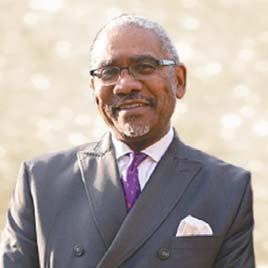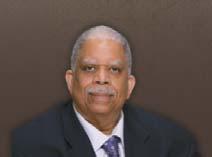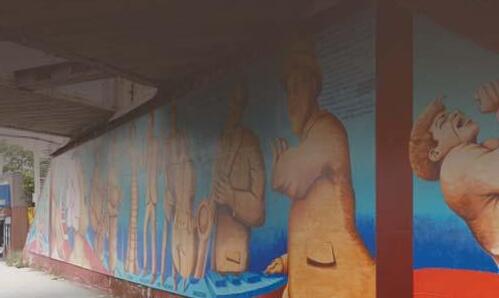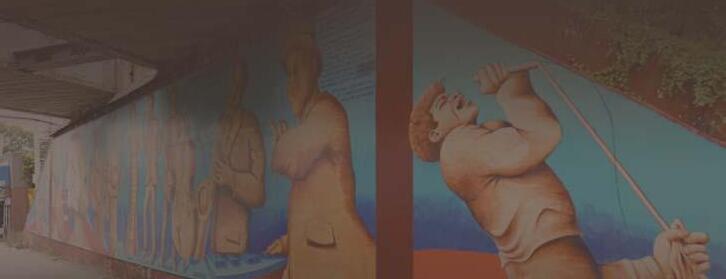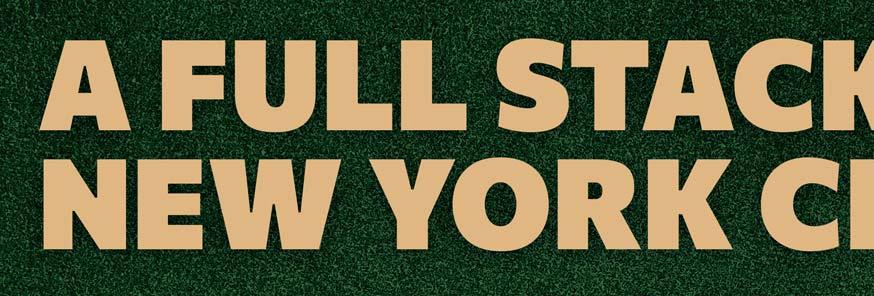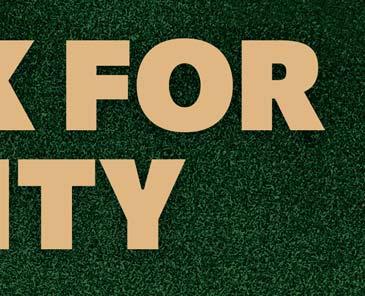










28 th Annual Celebration of Queens – 2025 NONPROFITS THAT CHANGE PEOPLE’S LIVES



















































28 th Annual Celebration of Queens – 2025 NONPROFITS THAT CHANGE PEOPLE’S LIVES











































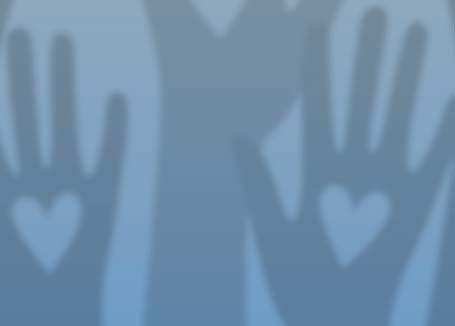


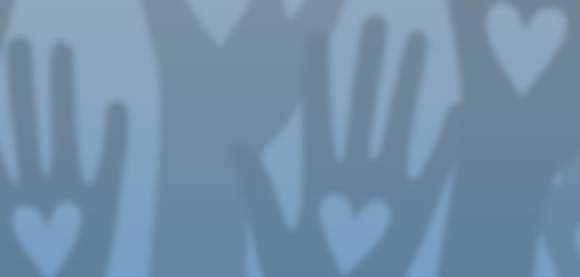












Sanctuary and Victorian Garden 149-19 38th Avenue, Flushing, NY 11354 www.vomuseum.org 718-359-6227

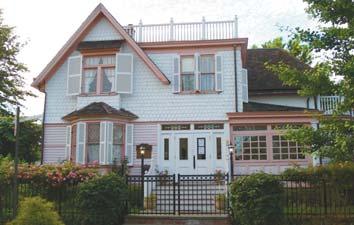
Experience the 19th century home of German immigrants and explore connections to Queens families today. Offering house tours and Cultural Events, Tuesdays & Sundays 1:00-4:00pm
Fanciful Totes Workshop .......................Sunday, June 22, 1:30pm
Garden Creativi-Tea Workshops ...........Tuesday, July 8- 29, 1:00pm
Birdy Birthday: All about Pigeons ........Sunday, July 27, 1:30pm Shakespeare in the Garden ....................Friday Evenings, August 8 & 15
Sarang-bang, EnYoung Choi’s art on view through August info@vomuseum.org















Anyone 18 and up can jump in!
Whether you’re a seasoned debater or just love a good argument, this game is perfect for friends, family, and anyone who enjoys a fun, thought-provoking challenge.


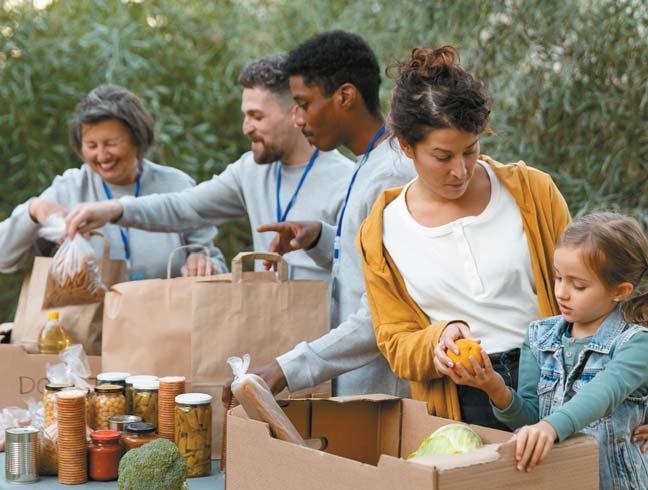
Boys & Girls Club: for the youth ...........4 • River Fund: services that evolved
• Queens Community House: for all
• KAFSC: aiding victims of violence .......10

Introducing our game packed with 90 awesome cards, a 30-second sand timer, and a ‘For It or Against It’ die, all crafted to fuel your intellect, ignite great conversations, and boost your self-confi dence!
Topics Include:
Sex and Lies
For It or Against It
Please visit our website for more info. www.yodm.com 929-785-8126 lamont@yodm.com Connect with us: yodco :


• Commonpoint: from cradle to grave ...12
• HANAC: senior housing and more ......14
• GRYC: for kids around Ridgewood ......16
• Masbia: feeding anyone in need .........18
• TCCNY: serving those of all ages .......20
• Fortune Society: a second chance......22 • QCP: promoting independence
· 6 OUT OF 6 COMMUNITY BOARDS SUPPORT
· 41 TO 2 CITY COUNCIL MEMBER VOTE
· FULL BOROUGH PRESIDENT SUPPORT
· 24,000 RESIDENTS SIGNED PETITION IN SUPPORT




$1 Billion in Community
$320 MILLION to create 25 acres of new public open space at Metropolitan Park.
$163 MILLION for a Community Impact Trust supporting Queens nonprofits.
$150 MILLION Taste of Queens, a year-round market celebrating local food and global culture.
$480 MILLION for public infrastructure upgrades including a transformed Mets-Willets Point 7 subway station.
$25 MILLION for community identified health care and youth and senior needs.
23,000 good-paying union jobs. Learn more at metropolitanpark.com
Metro clubs provide safe spaces for young people to learn and grow
by Stephanie G. Meditz
Associate Editor
Queens kids of all ages and backgrounds can dare to dream at the Boys & Girls Club.
With more than 5,400 chapters, the nationwide organization aims to empower young people, especially those most in need, to reach their fullest potential as productive, caring and responsible citizens. The organization’s Variety and Metro Queens clubs do just that for the kids and teens of the World’s Borough.
David Kupecky, executive director of the Richmond Hill-based Boys & Girls Club of Metro Queens, said the group aims to create a pipeline for members. Kids can participate in the club’s programs as young as 3 years old, stay through college and even find jobs or internships as alumni.
“Our goal is to meet all kids, especially those that need us most, and get them wherever they are in life into our pipeline and really work with them through the different stages of life,” Kupecky said.
Former City Councilman Costa Constantinides, the CEO of the Variety Boys & Girls Club of Queens, said the group is all about giving young people a chance to chase their dreams and passions.
“Our goals are just to make sure that every kid, regardless of their ZIP code or their socioeconomic status, has the opportunity to get into an afterschool program and be able to compete to be whatever they want to do in this 21st century,” Constantinides said.
The Astoria club is the afterschool provider at PS/IS 78, IS 10 and PS 398. It also has collaborated with PS 112 on a “community school,” its website states, with services such as academic intervention and chronic absenteeism support.
But the VBGCQ’s pool, gym and theater are the club’s “heart and soul,” Constantinides said, with its Learn-to-Swim programs for all ages among its most popular.
Sports also are in demand, with several students in the club’s Amateur Athletic Union basketball program receiving Division I and II scholarships.
The VBGCQ in 2023 acquired an educational rooftop farm, Sky Farm LIC, which allows young people to learn about sustainable farming. It produced more than 4,300 pounds of food in 2024, its first year — more than 75 percent went to the club, and the rest went to LaGuardia Community College’s food pantry.
Its new Queens Culture & Arts Network also aims to enhance the borough’s cultural landscape through artistic classes, community workshops, personalized coaching and events such as performances and exhibits.
“Our impact is giving our kids that safe space and opportunities to seek their dreams,” Constantinides said. Information about all programs is available at bgcqueens. org.
The Metro Queens club offers afterschool services for students from kindergarten through eighth grade at 12 sites in Southern Queens. They strive to continue in the academic spirit of the school day, with opportunities for students to explore science, the arts, physical fitness and social recreation.
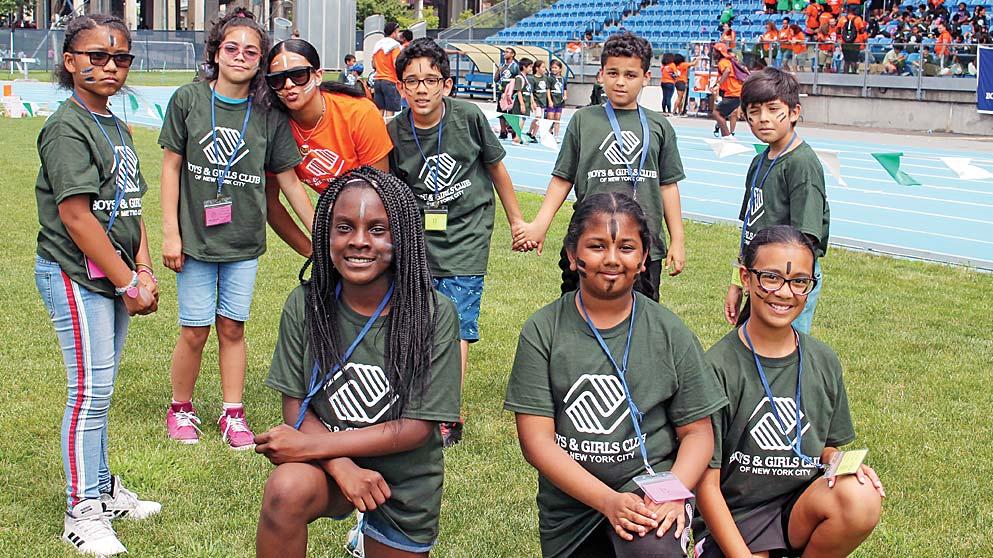
understand why they study certain subjects and motivate them to excel, Kupecky said.
Kupecky said also that teens make up about 3,000 of the club’s 7,000 members.
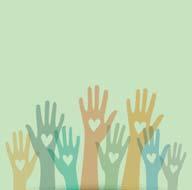
The club works to help its members, especially those in elementary school, find their strengths and passions. Knowing their interests and having an idea what they might like to do for a career can help them
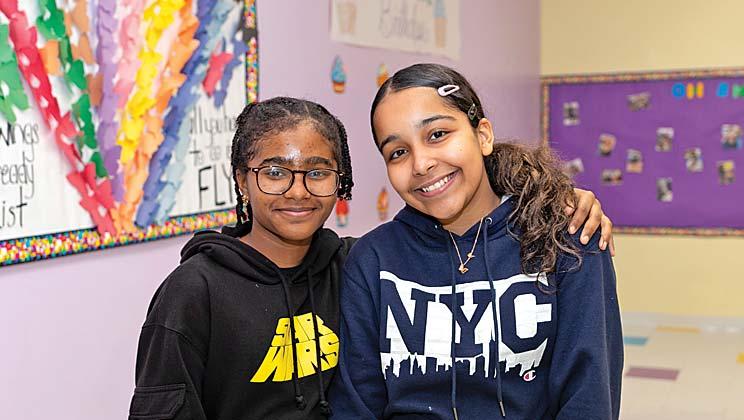
The Richmond Hill site is home to its teen center, which only serves the group’s high schoolaged population.
“Sometimes, things that we learn in high school are challenging,” he said. “If we can connect that to why we need it in our future, it helps them pass those classes, or at least understand why they’re taking those classes through that middle and high school age.”
From college tours and SAT prep to summer jobs and internships, the club works to help teens chase their dreams. One may learn more at metroqueens.org.
Jasmin Espinoza, a program manager for the club, was recognized with the Staff of the Year award at the club’s annual gala.
Kupecky said she was a “club kid” growing up, and it was a proud moment for him to see her come full-circle.
“It just shows how the club becomes just something so much more than a place that you go after school,” he said.
Constantindes said the same of the Western Queens site — several board members were former club kids who are now giving back to the next generation “because this
club changed their life.”
But despite their successes, the clubs’ work is far from over.
The Western Queens club is expanding its reach even further as it rings in its 70th anniversary. It will quadruple in size with a new $293 million clubhouse, which is slated to become the largest Boys & Girls Club in the country.
“We do all this amazing stuff, but we’ve reached a point where we just need to serve more kids, and we need to do it in a building that is worthy of this community,” Constantinides said.
Not only will the development include a planetarium, arena, 250seat theater, aquatic center, science lab, business incubator and 400seat school, Constantinides said, but it will add 236 units of deeply affordable housing, with 69 set aside for young people aging out of foster care.
The project also will be carbon neutral, he said.
The VBGCQ is looking at serving 16,000 kids with its new building, he continued. The organization hopes to serve 30,000 by the end of the decade and assist with breaking cycles of poverty in Western Queens.
“We’re serving 4,000 kids a year, 3,000 of those being below the poverty line,” Constantinides said. “When you hear 4,000, that sounds like a large number, but when you compare it to the need of 10,000 kids below the poverty line in our attachment area, we’re only scratching the surface.”
Kupecky said the BGCMQ hopes to expand to 15,000 members by 2035, with teens making up half that number. Renovation plans also have begun for what he called the “old side” of the building, which was built in the ’20s. The club also hopes to open a separate area for trauma-informed programming, including counseling sessions.
“Trying to have a holistic approach to how we service our kids is very important for us, and to keep serving South Queens the best way that we can,” Kupecky said.
Kupecky, who has served as Metro Queens’ executive director since 2016, said it does not feel like a job to him.
“I’ve been blessed with seven unofficially adopted daughters through my time there that are all now grown up, and one is actually about to become a mom herself,” he said.
As the VBGCQ’s CEO since 2021, Constantinides said he sees himself as “the guy with the torch,” whose job is to bring the organization to the next level and hand it off.
“My job is just to leave it better than I found it for the next comunity and for the next group of kids that are going to be served after I leave, whenever that is,” he said. “Hopefully not anytime soon.”
“We always talk about how the club is a second home to so many. It doesn’t matter if you’re a kid in the program or a staff member in the program,” Kupecky said. “The club is just such a magical place where it’s like a whole other family.” Q
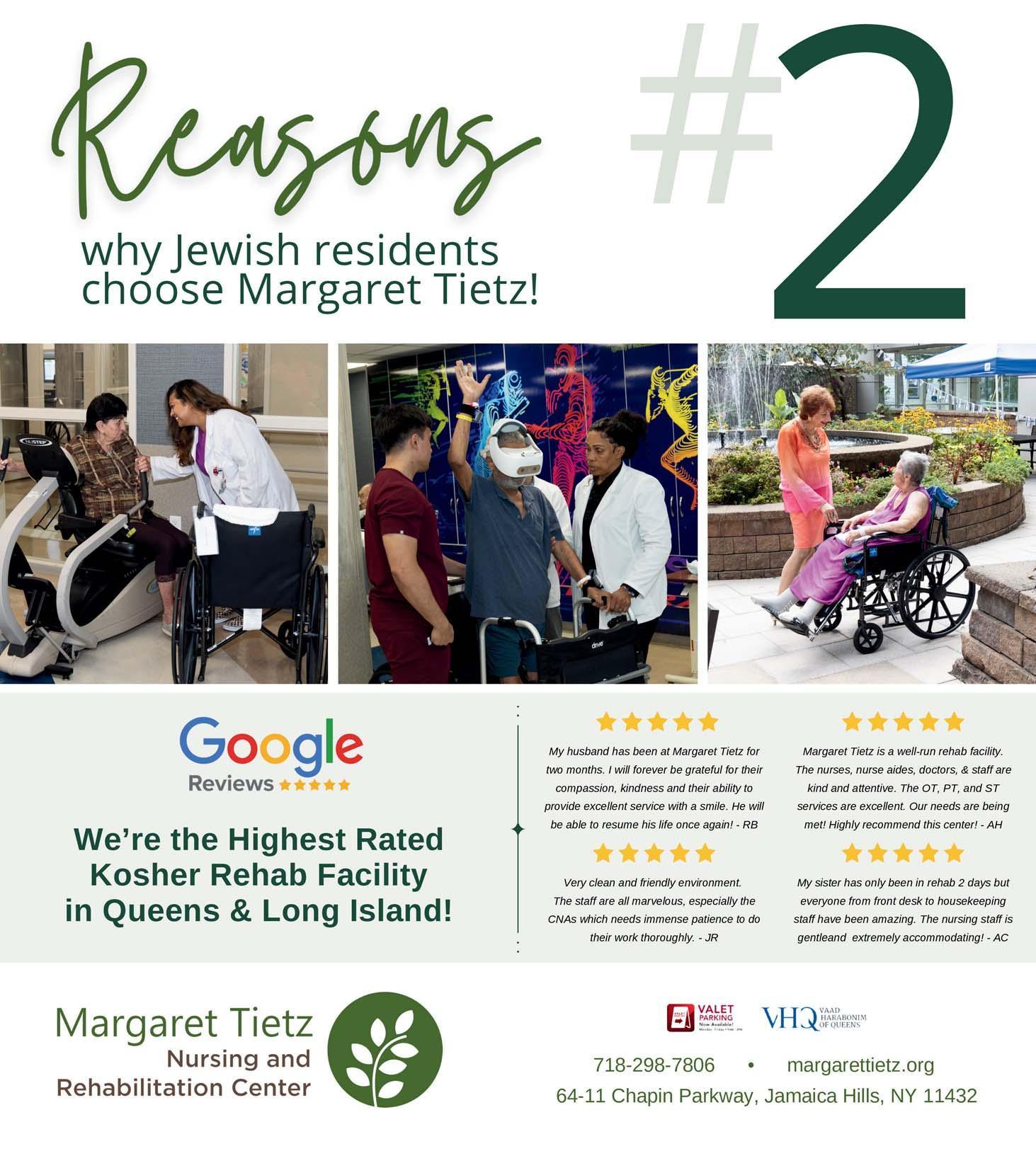
by Naeisha Rose Editor
A grassroots effort created to serve the HIV/AIDS community has grown more than 30 years later to become the antipoverty nonprofit River Fund.
The River Fund Inc., located at 89-11 Lefferts Blvd. in Richmond Hill, is in its 34th year serving residents in Queens and also has expanded to help Brooklynites.
The organization’s primary goals are to provide food and benefits access, along with education, to tackle poverty, according to Swami Durga Das, its founder and CEO.
After losing a partner to the HIV/AIDS epidemic and coming back to Queens to take care of his mother, who had had a stroke, Durga Das started doing volunteer work at the AIDS Center of Queens County, the Gay’s Men Crisis Health Center, Terence Cardinal Cooke Health Care Center, the Incarnation Children’s Center and other volunteer organizations.
“We were doing fundraisers for clothes and different things that people could use,” Durga Das told the Chronicle. “Then someone asked me to make cookies at Rufus King Park in Jamaica.”
About 42 people showed up to the park, said the nonprofit CEO.
The fight to help people afflicted with AIDS expanded to become a war on food insecurity, and by 1989 the idea for the River Fund was born.
“We also started making sandwiches,” said Durga Das, 77, of
South Ozone Park. “It took us a year and a half to become a 501(c)3 ... and now we are the firstin-the-country mobile food program.”
What started as a street relief group helping those struck by the ravages of HIV/AIDS has grown to become one of the largest providers of emergency food in New York City by distributing more than 1 million pounds of groceries and needed essentials, per month, to more than 35,000 households annually with the help of groups such as Community Food Center, City Harvest, the Food Bank and more.
The group also helps other food pantries, churches and community-based organizations by supplying 350,000 pounds of food per month from its pantry via its Hub & Spoke program.
“We still visit the park,” Durga Das said of Rufus King. “All of our work really goes into looking at the struggle we are going through.”
Since the height of the HIV/ AIDS crisis in the late ’80s and early ’90s, more medications to tackle the disease have been invented, resulting in fewer lives being cut short and more people living longer, productive lives, Durga Das noted.
“But poverty, has been something that has been around since I was a child, before I was here and continues on into today,” he said.
“The face of poverty has changed.”
River Fund members spent six months at Ground Zero serving meals from restaurants to 9/11 first
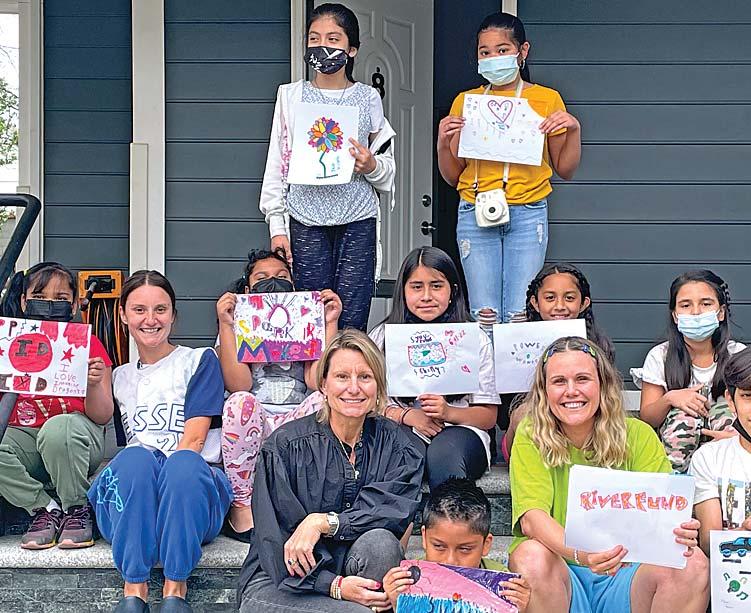
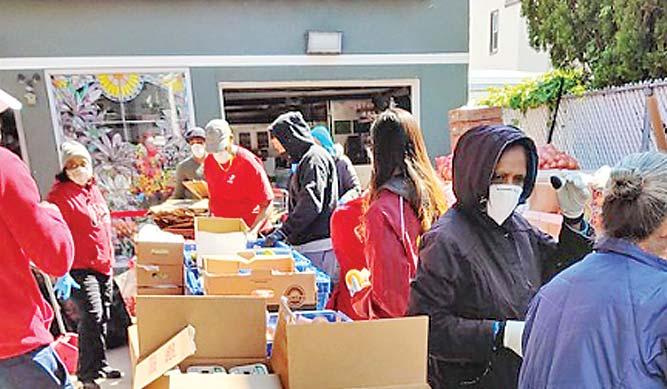
responders. The group worked with the Red Cross and U.S. military personnel to serve those impacted by Superstorm Sandy and, despite getting hit hard by Covid-19 as many of its volunteers got sick from the virus, it continued to stay strong and help others.
The organization, online at river.fund, continued to grow. Durga Das said it takes more than food to end hunger and poverty.
Around 2008, the group created a Benefits Center Team that provides bespoke client management for families, seniors and individuals,
“What do people need?” Durga Das asked.
The team gets people in touch with benefit programs from SNAP to immigration resources to healthcare and more. They provide a “concierge service” tailored to the needs of a client as opposed to using a one-size-fitsall approach to helping those in need of resources.
After learning more about the needs of his clients, Durga Das had another realization.
“We realized so many ways off the road of poverty often involve finances, jobs and funding,” said the nonprofit founder. “We realized that education was something that was probably the most powerful tool for us. Making sure the youth are educated or have a career trade school, a college education or a masters and all that. That is the real way to move people off the line [of poverty].”
The group’s Educational Pathways foundation, launched during Child Poverty Awareness Day in 2013, provides backpacks with age- and grade-specific school supplies.
The foundation serves as a capstone for its Cradle to College Initiative, which includes baby showers for expectant parents, its backto-school program, a tutoring and mentorship program, scholarships for college, application help for trade school and more.
families.
“When we build it, it will be three stories,” said Durga Das. “We are actually in the process of a capital campaign.”
During his State of the Borough speech, Richards announced he will allocate $3 million to the nonprofit. The group expects the money at the end of the month.
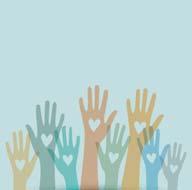
Youths have gone on to attend St. John’s University and New York University, to name just two educational institutions, and to pursue finance and other careers.
“We’ve gotten them into trade school,” said Durga Das. “Some have become mechanics ... we have a lot of respiratory therapists.”
The future is looking bright for the nonprofit.
The organization will receive money from Borough President Donovan Richard’s office to help with funding a Community Empowerment Center next door to its headquarters.
“We are going to knock it down and build it up,” Durga Das said of the site. “That site will be for our education, scholarship, mentoring, tutoring and workforce program.”
The CEO doesn’t want people to get jobs just to survive, but to thrive so they can sustain their
The River Fund says to rebuild the house will cost $4.2 million. It plans to raise $7 million to $8 million to cover the remaining infrastructure costs and its programming.
The facility will be at 89-09 Lefferts Blvd. It is expected to open in the next three to five years.
A fundraiser will be held on Oct. 28 at the Metropolitan Club in Manhattan.
In less than two years, the organization plans to have a new executive director who will help with people’s changing needs.
“We went from AIDS to Sandy to 9/11 to Covid-19,” said Durga Das. “I would hope that he or she moves [the River Fund] forward with a culture of kindness and a culture of care ... for whatever issue rises in our society ... Help people continue to stay afloat — not just to survive, but to thrive.
“The goal is that people can thrive, have a life worth living with dignity and respect and humanity so they can do what they are destined to do.” Q




















































































by Kristen Guglielmo Editor
If you ever wander past one of Queens Community House’s locations, you might hear the thump of a basketball, the ripple of laughter from a children’s class during storytime or the hum of conversation in a language you don’t speak — not yet, anyway.
Queens Community House is a multisite, multiservice nonprofit that has been threading connection, support and opportunity through the diverse neighborhoods of World’s Borough since 1975. With dozens of programs spread across more than 30 sites, QCH serves over 27,000 people each year. Its mission is to provide people with the tools to enrich their lives and build healthy, inclusive communities.
Through a broad network of programs operating out of 40 sites in 15 neighborhoods, QCH offers residents a support system at every stage of life, helping them develop knowledge, confidence and skills to change their lives for the better.
The nonprofit operates three main community centers: in Forest Hills, at 108-25 62 Drive; in Kew Gardens, at 80-02 Kew Gardens Road, suite 202; and the Pomonok Community Center in Flushing, at 67-09 Kissena Blvd.
QCH also runs three Beacon programs, school-based community centers serving ages 6 and older, at JHS 190 in Forest Hills; MS 210 in Ozone Park; and PS 149 in Jackson Heights.
“In a world of increasing division and social isolation, QCH remains committed to building a Queens where everyone belongs, creating spaces where people across the life cycle learn, grow, and find meaningful connections, newcomers and old timers forge common ground, and people from all backgrounds become true neighbors,” Ben Thomases, the group’s executive director, said in a statement.
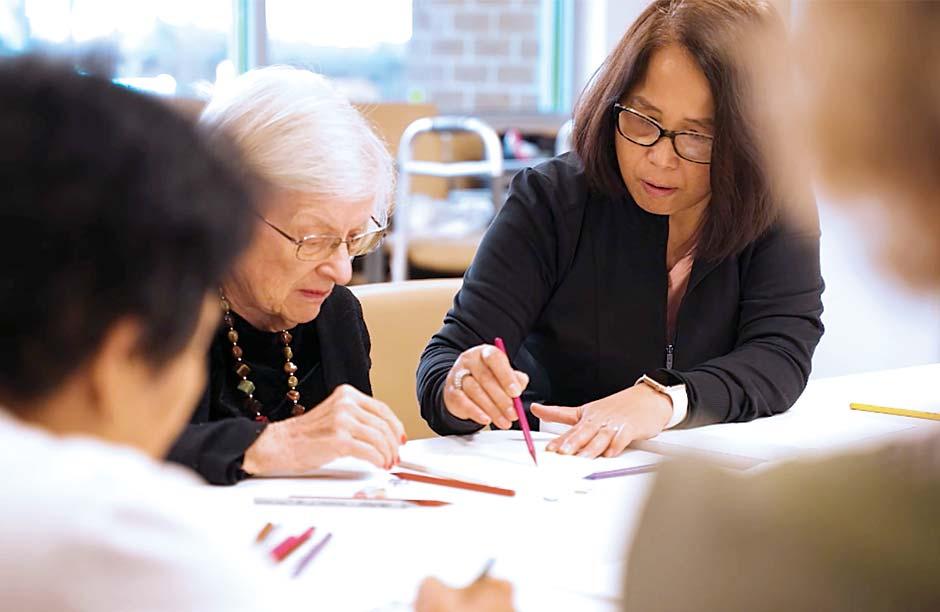
with a safe, enriching space during hours when other facilities might be closed.
During the summer, QCH offers camp programs that include structured recreational activities, educational opportunities and field trips that keep kids active and learning when school is out.
Workforce development is another cornerstone of QCH’s offerings.
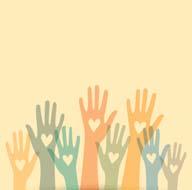
Details on QCH, its programming and locations can be found at qchnyc.org.
For parents of young children, the Queens Childcare Network, part of QCH, connects families to affordable, high-quality early learning environments. The network also supports licensed family-based childcare providers with professional development, resources and coaching to promote early childhood education and development. For more, visit queenschildcare.org.
QCH’s afterschool programs cover a variety of activities, including academic enrichment, social-emotional learning, arts, sports and cultural activities. The programs are hosted at various community centers and school sites, where students of all ages can learn and grow.
From free tutoring and college prep to soccer, dance and civic engagement, the Beacon programs are where many kids find their footing. And Evening Drop-In Centers at Forest Hills and Pomonok provide older teens
The city Summer Youth Employment Program connects young people with paid internships across the boroughs, while Work, Learn & Grow extends that opportunity into the school year. The Neighborhood Intergenerational Chore and Errand Program has students assist older adults with various tasks, building cross-generational relationships along the way. For those ages 16 to 24 out of school and work, the Opportunity Youth Program offers a structured path back to employment or education.
In a testimonial posted to QCH’s website, Christopher Gonzalez, who now works there as a family support coordinator, said he took part in the SYEP in 2017, which landed him his first job at the South Ozone Park Public Library.
“Fast forward five years later, I came across a parent that used to attend the library I worked at,” Gonzalez said.
Both the mother and the child remembered him, and the parent thanked him for watching her kid.
“This moment cemented my desire to continue working with and for communities, especially in Queens,” Gonzalez said.
But QCH’s support doesn’t stop at adolescence. Its family services are designed to meet people where they are — sometimes literally. The SEVEN, or Socially Empowered Vibrantly Engaged Neighborhood, Family Enrichment Center in Jackson Heights is a
welcoming space where families co-create programming alongside staff. Parenting workshops, bonding activities and one-onone support helps families achieve greater stability and well-being.
Generation Q is QCH’s afterschool youth center for lesbian, gay, bisexual, transgender and queer youth and allies, between the ages of 13 and 21. The program offers LGBTQ youth a safe environment with a variety of educational and recreational opportunities, as well as social and emotional support. Participants are connected with meaningful opportunities for advocacy, activism, peer education, community building and leadership.
Youth leadership is further nurtured through Access For Young Women, a 30-week program that helps participants build confidence, explore social issues, and develop public speaking skills, culminating in a youth-led conference.
At the Pomonok Community Center, a community-led farmers market provides fresh produce and eggs, while the Food Justice Youth Leadership Program trains middle and high school students to advocate for nutrition and equity.
Christian Melendez of John Bowne High School said, “I love coming to the Food Justice program. We’ve made a documentary about food, we’ve learned to compost, we take care of the two community gardens, and so many other things. It’s not just about getting your hands dirty and gardening; we’re learning about where our food comes from and how to take care of the things we grow.”
Immigrants and adult learners can enroll in free English for Speakers of Other Languages, a class focused on useful real-life skills. And through its Neighborhood Preservation and Eviction Prevention Programs, QCH helps families navigate the often-confusing world of housing rights, legal benefits and crisis management.
For older adults, QCH offers a wide variety
of services that address both the practical and the personal. Its six older adult centers across the borough provide nutritious meals, fitness classes, art workshops and trips that keep minds sharp and bodies active.
Some need more tailored care, and that’s where QCH’s Social Adult Day Services come in. Through LIFT, or Living Independently with Friendship and Togetherness, and Tyme Away, QCH supports those living with dementia, frailty or isolation, offering therapeutic activities, nutritious meals and a strong sense of community.
QCH also has drivers who provide seniors rides to and from its older adult centers, as well as to special events and shopping trips.
For those who prefer to stay home, QCH delivers hot meals, conducts friendly visits and provides case management support. The NORC, or Naturally Occurring Retirement Community, program at the Forest Hills Cooperative encourages “aging in place” by providing senior residents of participating buildings with case management, preventative health services, trips and health-promoting activities.
The Queens Center for Gay Seniors, in Jackson Heights, provides a culturally rich environment where older adults can engage with peers, enjoy a hot meal, keep active and learn new skills.
In a testimonial, Doug Soblick said the Kew Gardens Community Center provided essential support after his son died of brain cancer.
“Having this center saved my sanity, and possibly my very life, because depression can be a horrible thing, and it stopped me from going down that path,” Soblick said.
Even those around him are benefiting from the support he’s received.
“The positive impact even extends to my wife,” Soblick said. While she doesn’t come, my lifted spirits allow me to help her. I even bring her lunch from the Center daily. ... I owe a huge debt to this place; I don’t think I’ll ever be able to repay what it’s done for me.” Q
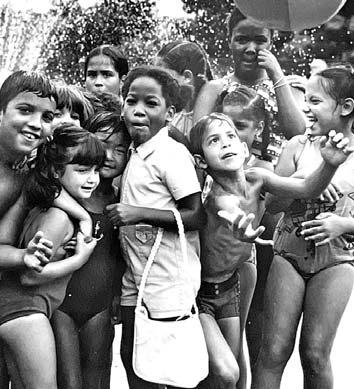









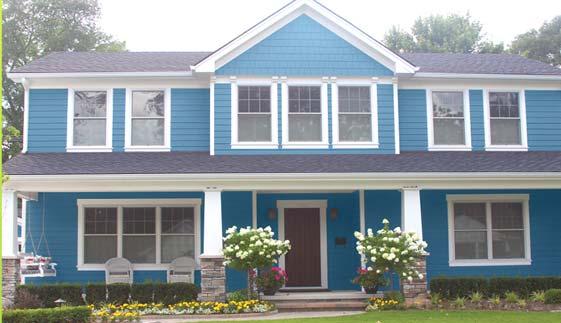

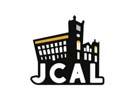
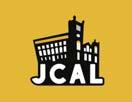
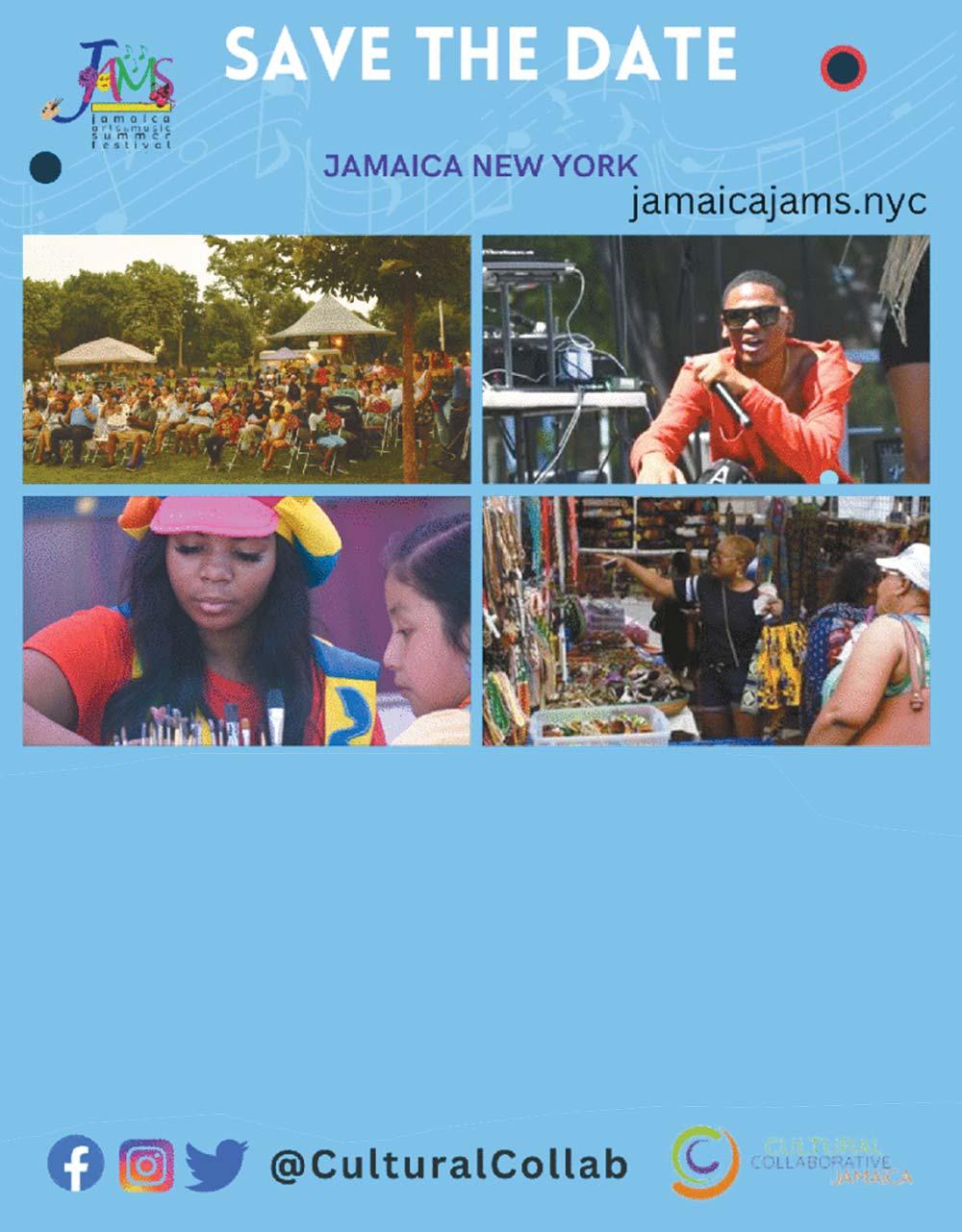





by Michael Gannon Senior News Editor
The website for the Korean American Family Service Center in Flushing can appear unassuming at first glance — until you scroll down under the heading “Our Work” and see the staggering list of programs, personal and professional services that are available for victims of domestic and sexual violence in the Korean community.
And while the organization’s origins may have been small, its commitment to those in need never was.
“We started 36 years ago in a small church basement in Manhattan,” said Jeehae Fischer, KAFSC’s executive director, in a recent interview. “Our founder started it because she and other women had seen a lot.”
Fischer said women began calling the founder because she long had been a force for women’s empowerment in the Korean community.
has gone from volunteers answering whenever possible to someone being there 24 hours a day.
“We did what we could from the basement of a church.”
Now KAFSC has trained counselors, social workers and mental health professionals from 9 a.m. to 5 p.m., and rigorously trained volunteers — some of whom are former clients — around the remainder of the clock.
Their ability to offer needed services from people who speak Korean and share the culture is vital.
a place to turn to

“They called her because they were in violent situations,” Fischer said. “They just didn’t know who to turn to. In 1989 there wasn’t a long Korean history in the United States or New York. There weren’t a lot of resources that were shared with these women. So they decided to set up a hotline for the survivors, the victims of domestic violence.”
The help at the other end of (718) 460-3800
“Our mission is to end genderbased violence,” Fischer said. “We began with domestic violence. Then women started calling about sexual abuse. And then child abuse. And then human trafficking.”
The content under the “Our Work” portion of the website — kafsc.org — is a tribute to care and determination:
• Counseling/Case Management/Support;
• Legal & Social Services Advocacy;
• Economic Empowerment Program;
• Housing Program;
• Community Outreach & Education; and
• Children & Youth Services.
Each category itself has myriad entries for information on topics such as support groups, education, job training skills, emergency and
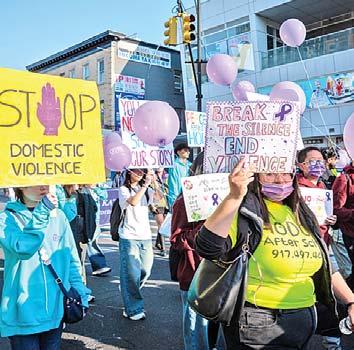
permanent housing and help with dating violence or thoughts of suicide.
Fischer herself started with KAFSC in 2011 running economic empowerment initiatives.
“I was the Self Sufficiency Program coordinator,’ she said. Volunteers, she added, are always welcome.
Ninety-eight percent of the group’s clients are women. And Fischer goes back repeatedly to the irreplaceable benefit of counselors and volunteers who share a victim’s language and
culture. She said the volunteers can often be amazed and inspired by the strength and resolve of women who may not even realize at first that they have any.
“It’s not easy for them [to seek help],” Fischer said. “When we have a client who decides to call, it may have taken a long time. Even for an English speaker, it’s really difficult to go to the police and report incidents that are happening in their own homes, by your spouse or your intimate partner ... In a foreign language? It’s just not going to happen.
“When they call us, we go with them to the precinct. We’ll go with them to talk to [the district attorney]. We can advocate for them ... they have to do this knowing they maybe sending to jail someone they’ve loved, maybe had a family with.
“A lot of people think it’s black and white; they say ‘Well, just go and get help. Report that person.’ It’s not that easy.”
That is especially true when children are in the equation. Fischer said children in households with abusive relationships wind up being secondary victims.
Or even direct victims.
“That’s probably the hardest on us, I think,” she said. “We’ve seen a lot more of that since Covid.”
As for how they can keep going, Fischer said victims’ resilience can go a long way in helping the helpers, recalling one in particular.
“She inspired me to do more.” Q
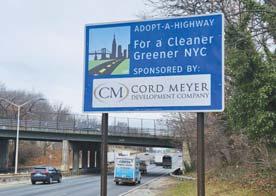
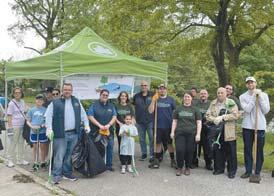
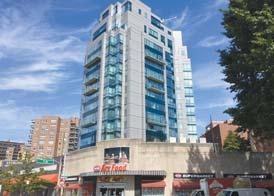
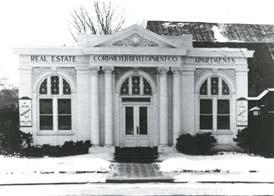
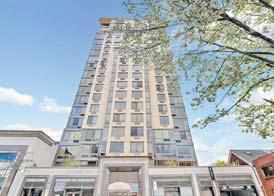
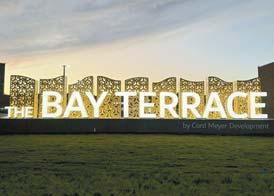
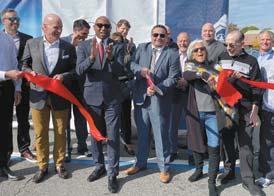
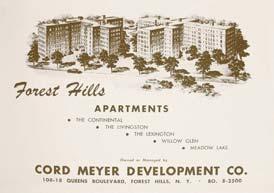
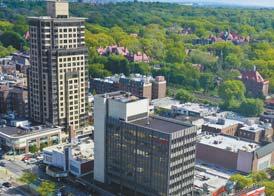
Since 1904, Cord Meyer Development has helped shape the growth of Queens. From Elmhurst, Woodside, and Forest Hills to Bayside, Bay Terrace, and beyond, the communities we developed continue to thrive and stand the test of time.
As we embark on our second 120 years of service, Cord Meyer is excited to introduce new projects that look to the borough’s future. While much has changed since 1904, our commitment to Queens remains as strong today as the day we were founded.
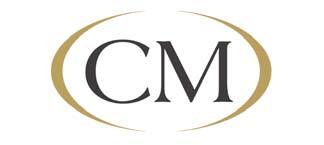



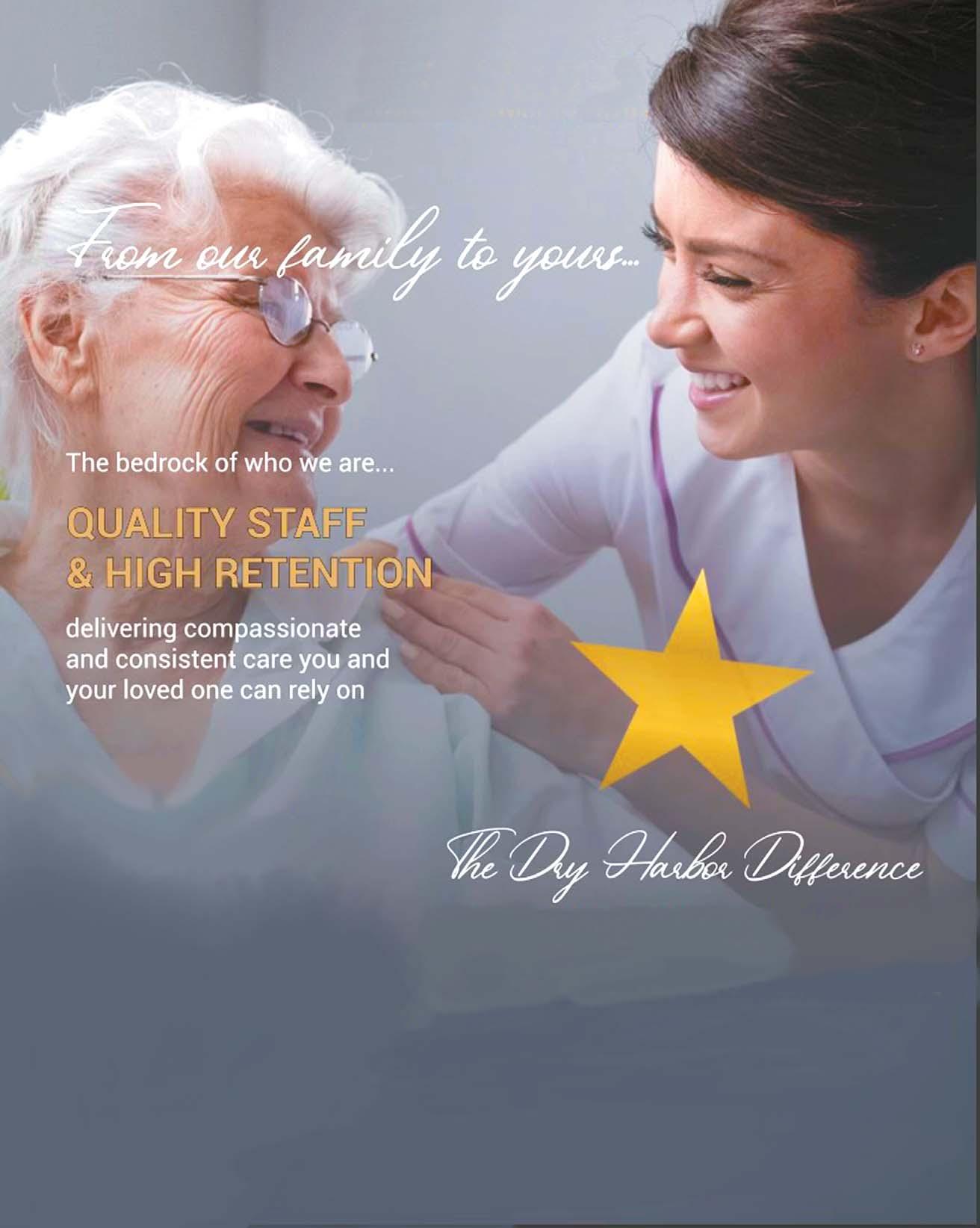





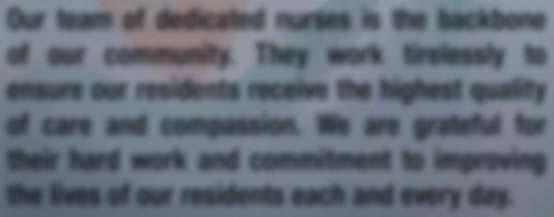
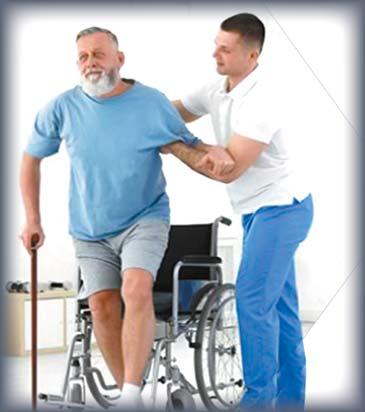



















by Mark Lord Chronicle Contributor
Little could 16-year-old Lee Perlman have known at the time that some 50 years later, he would become chairman of the board of an agency that would have changed the course of his life.
Perlman explained in a recent telephone interview that, as a teenager, he was living in Forest Hills, three blocks from the Central Queens Y. His father had died and his mother, an alcoholic, “ran away from home,” leaving Perlman and his younger brother to fend for themselves.
“I walked into the Y looking for a summer job,” he said. He was hired as a counselor, and, over the next several years, he worked his way up to head counselor.
“I was Y-made,” he likes to say. “If not for the Central Queens Y, I’d be nothing.”
For many years, he lost contact with the Y, but that changed about 15 years ago when he was asked to serve on the board.
In 2018, the agency, which dates to 1954, merged with the Samuel Field Y in Little Neck, founded in 1974, to jointly become Commonpoint Queens. This past January, Perlman became Commonpoint’s new chairman.
“Nothing could be full circle more than that,” he said.
The two organizations already had been jointly managed prior to joining forces, but the formal merger allowed them to pool their resources and the talents of their personnel.
tary schools and 27 high schools, offering services to over 100,000 people each year.
According to Commonpoint’s website, the organization is guided by four principal Jewish values:
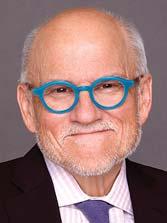
Chesed , or kindness, following a belief in giving of oneself fully to community members in need; tzedakah, or social justice, creating equity for everyone; tikkun olam, or repairing the world, by meeting the evolving needs of the community to help to transform lives; and shituf, or inclusivity, promoting fairness and reinforcing a commitment to bringing diverse populations together.
“Commonpoint is a community centric nonprofit, serving diverse audiences through every chapter of life,” the site says.
As Ellman put it, “We serve babies to bubbies,” or, as Perlman said, “We do cradle-tograve services.”
The website says, “we offer a rich range of services through our vast network of professionals, social workers and volunteers, giving people the tools and resources to connect and grow.”
‘babies to bubbies’

CEO and President Danielle Ellman has been a member of the staff since 2009, and she has witnessed the organization’s expansion over the years.
“We’ve grown in size and scope. We’re doing a lot more in the community. We’re more than a gym and swimming pool,” she said. “We do that, but we meet the community where it’s at.”
In fact, she added, “Community happens here.”
Today, the organization boasts no fewer than 430 full-time employees, with an additional 2,800 part-timers coming on board during the summer months, according to Ellman. In all, the agency serves 81 sites throughout Queens and the greater New York City area, including the Samuel Field and Central Queens Y locations, the two anchors where many of the agency’s programs are based, as well as 30 elemen-
Commonpoint’s mission is to meet the diverse needs of New York City and beyond, offering programs for people of all ages, ability levels and backgrounds to connect and grow together.
The agency provides early-childhood programs, afterschool programs, youth sports programs, summer camp, high school and college success preparation, job training, family programs, mental-health resources, support during crises, wellness programs and senior services.
Not surprisingly, Perlman takes particular pride in the agency’s summer jobs and job training programs. “So many things are so personal,” he said. “That makes me a more effective chairman.”
He is also dedicated to combating the issue of food insecurity. “Everybody has the right to eat,” he said, seeing to it that everyone who comes to the agency for a meal can do so with their head held high.
“I’m big on the ‘dignity’ word,” he said. Ellman, who helped execute the merger, said
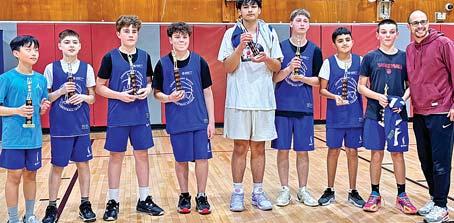

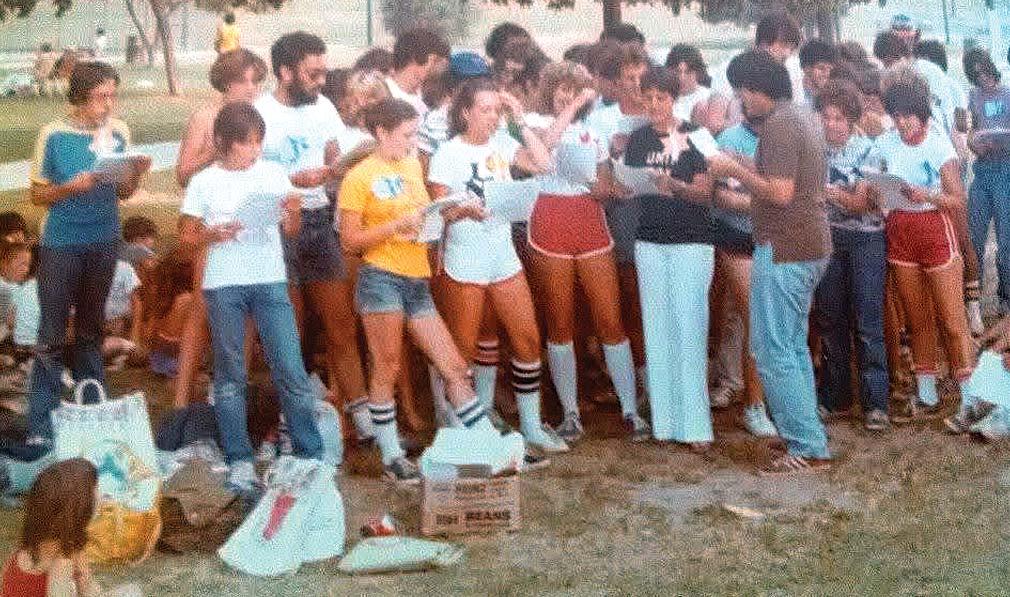
it has led to “greater efficiency. A big company allows us to weather different storms, including Covid.”
As far as that goes, “We were not sitting around waiting for the pandemic to end,” Perlman said. “We helped people get to the other side of the pandemic.”
One of the more recent additions to the organization’s services is known as The Hub, which operates out of two locations, one in Elmhurst and a second, aimed particularly at youth, in Jamaica.
The Hub kicked off in October of 2020, described by the website as a one-stop social service center, offering career and financial assistance, job placement assistance, legal assistance, food security, education for adults, clothing giveaways and a “pathway from crisis to stability.”
According to Ellman, “When people are in a crisis, and a problem is complex,” The Hub tries to simplify it and offer solutions.
The Hub, at 77-17 Queens Blvd., can be reached at (718) 268-5057. The Youth Opportunity Hub is located at 82-17 Parsons Blvd. and its phone is (718) 719-9229.
The Central Queens Y is at 67-09 108 St. and can be reached at (718) 268-5011, while the Samuel Field Center is at 58-20 Little Neck Pkwy. and its phone is (718) 225-6750.
If you are interested in serving as a Com-
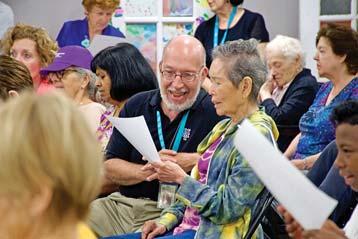
monpoint volunteer, there are plenty of opportunities, including, as of press time: detail-oriented individuals are needed for administrative clerical duties (call (732) 639-1579); individuals who would like to pay ongoing visits to older persons needed for The Friendly Visiting Program (call (718) 352-4157); and helpers needed to work in the food pantry, to collect, sort and package food (call (718) 268-5011).
For further information on the agency’s many locations around Queens and New York City, and the services and programs it offers, visit commonpoint.org.
What’s next for Commonpoint? While no one can see the future, Perlman said that Ellman has a clearer view than most.
“She wears a pair of glasses that no one else has a script for. She sees ahead,” he said.
Danielle Hersch, the chief strategy officer, hopes to “amplify our voice, to make sure everyone understands how Commonpoint can help. Our goal is to enhance the quality of life. As New York evolves and the needs of the community change, people experience different challenges at different stages of life.” She hopes the agency will meet the evolving needs of the community. “We try to be nimble and do the best we possibly can,” she said.
“Anything we do, we look to the future,” Perlman said. He would like to see expanded programs involving more affordable housing as well as daycare services for young people, particularly those with disabilities.
“We are not standing on our laurels,” he said.
Ellman expects Commonpoint will be impacted by projected federal funding cuts, making the organization “in these moments more relevant than ever.” She promises to remain “deeply committed” to serving the community, providing a positive impact.
In a diverse borough such as Queens, Ellman said, “Needs can change. People come together to support one another. We can be your commonpoint.” Q






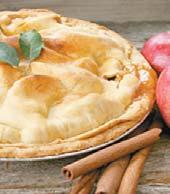




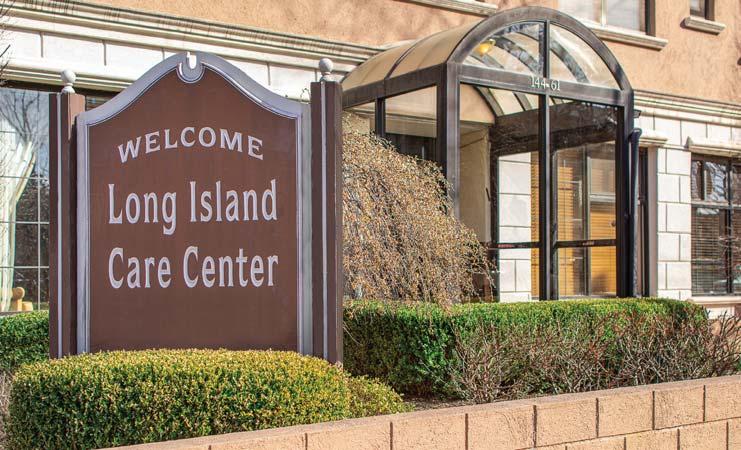
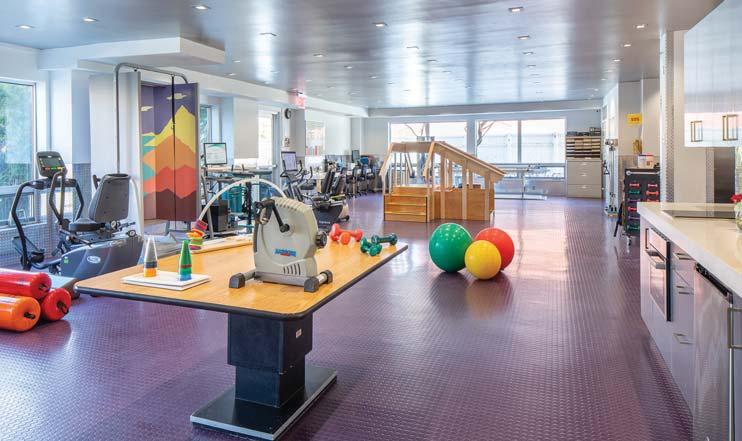
by Kristen Guglielmo Editor
What started in 1972 as a small support network for newly arrived Greek immigrants in Astoria is now one of the city’s most widereaching nonprofits.
HANAC, or the Hellenic American Neighborhood Action Committee, has spent more than 50 years growing beyond its roots, operating programs that serve youth, adults, seniors and immigrants.
From afterschool tutoring and job training to affordable senior housing and legal aid, chances are, HANAC has something for you. For a full list of programs, services and locations, visit hanac.org.
“We have a ton of programs, and the programs run the gamut,” Stacy Bliagos, the executive director of HANAC, told the Chronicle. “We’re very known for our older adult programs.”
The nonprofit has four main older adult centers: the Angelo Petromelis College Point Senior Center; and in Astoria, the Archbishop Iakovos Senior Center; Harmony JVL Older Adult Center; and the Ravenswood Senior Center.
beyond the aging population.
“We serve everyone who needs help,” Andrea Jerves, HANAC’s director of programs and development, said, adding that around 70 percent of those served are Hispanic or Latino.
The nonprofit’s Legal Immigration program has become a crucial entry point for new arrivals seeking stability and opportunity. Immigrants residing in NYC can access free consultations, legal assistance, application filing and translation services. The initiative also educates clients on their rights and helps them apply for work permits, green cards, citizenship and Deferred Action for Childhood Arrivals renewals. Services are offered in English, Spanish and Greek. Appointments are required, but all services are free of charge.

“We also have legal victim assistance,” Jerves said. “The program provides support and counseling for victims of crime. We help them in navigating legal processes and protection, as well as help them with claim compensation for any victim of any crime.”
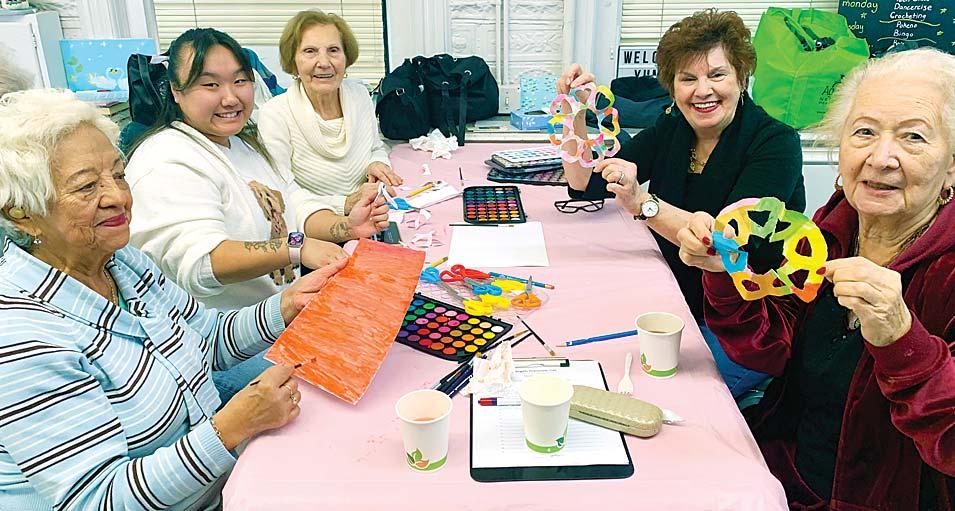
winning affordable and senior housing projects.
“We realized early on that older adults should age in the communities they help build,” Bliagos said. “And so having affordable housing for seniors was, I would say, a vision of our founders.”
Its network of senior centers and naturally occurring retirement communities offer daily meals, case management, recreational and educational programming and transportation assistance, while also working to reduce isolation and promote independence. Its Extended Services Program helps clients navigate Medicare, Medicaid and other crucial systems.
A 100-year-old participant said, “Coming to this senior center is what has kept me alive and moving forward. It’s given me purpose.”
But HANAC’s impact extends
Access to healthcare, another barrier for many New Yorkers, is addressed through HANAC’s Health Access program. The initiative helps clients apply for and maintain health insurance coverage, including Medicaid, Medicare and Affordable Care Act marketplace plans. Staff guides clients through the system, helps them understand how to use their insurance and refers them to appropriate community health resources.
HANAC has also committed to addressing housing insecurity through its development of award-
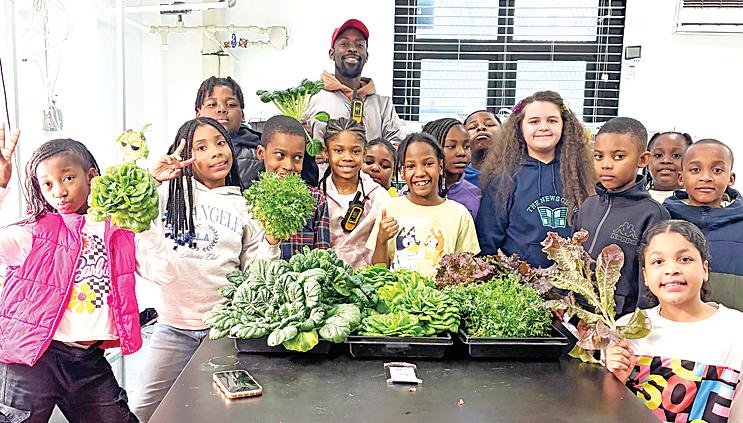
The HANAC Corona Senior Residence, an eight-story building with 68 units for low-income seniors, was among the first in the nation to meet Passive House Institute standards while achieving Enterprise Green Communities and Energy Star certification.
The development includes an early childhood education facility, vegetable garden and outdoor seating. Tenants also receive supportive services through the Senior Affordable Rental Apartments program.
HANAC’s PCA Senior Residence, built in partnership with the Presbyterian Church of Astoria in 2012, includes 66 units along with a recreational garden, parking, indoor communal areas and on-site service coordination.
HANAC played a major role in developing One Flushing, a 10-story building with 232 affordable housing units, 60 of which are designated for seniors. Built in collaboration with Asian Americans for Equality and Monadnock Development, the project includes nearly 30,000 square feet of retail and community space, as well as solar panels, parking and garden areas.
For younger generations, HANAC offers a robust portfolio of youth programming.
For starters, the group operates
Beacon programs at IS 141 and PS 19, afterschool programs designed to help participants develop their skills and reach their highest potential.
Its Compass and Cornerstone afterschool and summer programs emphasize literacy, science, technology, engineering, mathematics, social-emotional learning, the arts and physical fitness, all while aligning with city public school curricula. Programming is designed to build confidence, creativity and a love of learning, with special attention to students’ individual developmental needs.
At the New York City Housing Authority’s Astoria Houses, where HANAC leads year-round Cornerstone programming, participants ages 5 to 24 are immersed in activities such as tutoring, dance, photography, civic engagement and community service. The organization collaborates closely with resident associations and families to ensure programming reflects the interests of the youth it serves.
For middle schoolers, the SONYC program focuses on a holistic approach to serve as a pathway to success. Activities range from STEM exploration and music analysis to robotics, leadership development and service learning. Participation is limited to 75 students, ensuring a supportive and focused environment.
The Councilmatic After-School Program is tailored for recently arrived immigrant students who are English language learners. The program offers individualized support,
homework help and academic coaching to assist them in adjusting and thriving in their new school environments.
The group’s Workforce Development programs further ensure that young people are equipped for future success. With support from the city Department of Youth and Community Development, HANAC provides paid work experience, career exploration and educational support to youth ages 14 to 24. The initiatives target both personal and professional growth, enabling participants to chart a path toward long-term stability and independence.
If one is browsing HANAC’s website and services, and is unsure if the help that’s needed is provided, it’s worth reaching out.
“Whether it’s for HANAC or whether it’s another nonprofit, actually have a conversation to see what help is out there,” Bliagos said. “Because so many times people feel helpless and say, ‘No one’s going to be here to help me.’ It’s actually the opposite, right? We’re here to help them.”
She said HANAC has a referral service to direct people in the right direction, if another nonprofit is better suited for them to help.
“I would encourage every single reader, whatever issues they might be encountering, to come and speak to HANAC or another nonprofit to see what services exist, because so often I find individuals just suffering in silence, depending on what issue they’re facing,” Bliagos said. Q
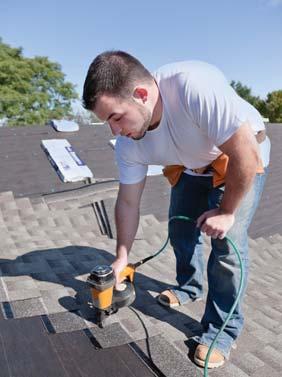

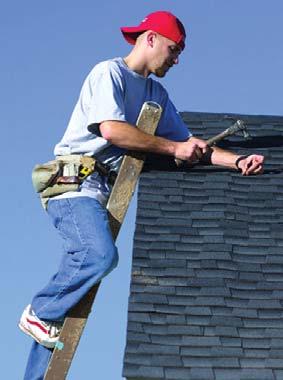

by Stephanie G. Meditz
Associate Editor
“We want kids to be safe and have fun,” Greater Ridgewood Youth Council President Bob Monahan said simply, when asked to describe the group’s mission.
With services ranging from afterschool programs to employment initiatives, the GRYC has aimed to present as many learning and leadership opportunities as possible to children from all walks of life since 1980. The group, which now owns two buildings, started as a “tiny storefront on Fresh Pond Road,” Monahan said.
“When you serve 3,000 kids, youth and families a day, you kind of make a difference in folks’ lives,” he told the Chronicle in an interview last week. “Parents can work because their kids have a safe place to go after school until they get home from work.”
The 501(c)(3) emphasizes diversity, equity and inclusion in its approach to serving youth.
The group’s various programs serve young people from 3K all the way to early adulthood. Its free, full-day Little Stars 3K/Pre-K For All initiative works to promote kids’ development through hands-on activities.
Ridgewood 3-2-1 Kiwanis Club and other organizations on initiatives such as food drives — donations pile up quickly when the thousands of kids served by the GRYC each donate a can of food, he said.
The group also takes unique approaches to engaging young people, such as bringing kids together from different sites for sports tournaments and dance showcases, letting them play video games with police officers and taking them up to the roof to see its seven beehives and learn about the process of making honey.
“We have a lot of really, really cool things going on with our kids where we’re able to offer them opportunities that they normally wouldn’t have,” Monahan said. “That’s our goal: to offer them new things.”

Learning extends beyond the classroom with GRYC’s free afterschool programs, and fun follows, too. Children at its elementary school sites across Queens can receive homework help and opportunities for physical activity on top of instruction in fields from science, technology, engineering and mathematics to the arts.
Sixth- to eighth-graders have the freedom to pursue their interests, with afterschool programs structured like clubs. Young people also have opportunities to lead through service, another central tenet of the group’s mission.
Monahan said the GRYC regularly collaborates with the

The group receives funding from the city’s Department of Youth & Community Development, Monahan said. But it also has fee-based programs for kids in kindergarten through the fifth grade.
Even after they finish school, young people do not age out of the GRYC’s services. Its sixweek Summer Youth Employment Program helps those aged 14 to 24 find summer jobs and paid educational experiences.
The free Beacon programs at IS 93 and IS 204 present those aged 6 and up, including high schoolers and adults, with opportunities for learning, socialization and more, even on evenings, weekends, holidays and vacations. One may visit greaterridgewoodyouthcouncil.org to learn more.
And GRYC alumni are still part of the family — Monahan said dozens of site directors came up through the agency, some of whom were participants themselves. Gino Ancona, the group’s human resources and office manager, started at the GRYC as a youth worker at 14, he said.
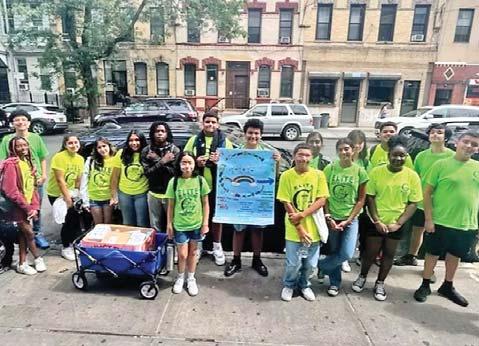
“I watched him go through high school, I watched him go through college, and now he’s a manager here,” Monahan said. “He’s been here for 18 years, so he’s been here more than half his life.” Monahan also said he can name many longtime directors who change people’s lives every day.
“It could be as simple as the kid got lunch or dinner that they wouldn’t have had when they went home,” he said.
Monahan started with the group in 1981 and became executive director in 1982. He left to run the Police Athletic League in 1989 but came back to serve as GRYC president in 1999. He said he had a retirement party more than three years ago, but never left.
“This is like a ministry for me,” Monahan said. “It’s fun to see all of these great things happen.” Q






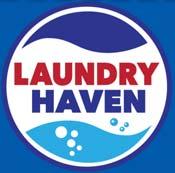












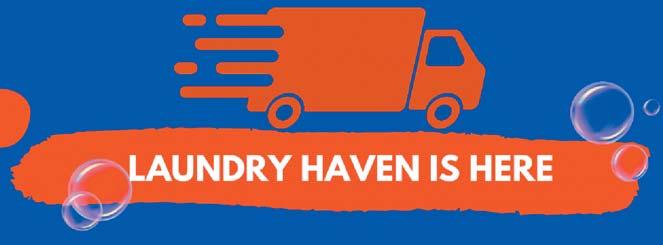


























Jamaica Hospital Medical Center is proud to be named one of America’s 100 Best Hospitals by Healthgrades






















Serving our patients and the community in a way that is second to none





































by Michael Gannon Senior News Editor
Economic hard times come and go. Covid came and mostly went. Administrations and priorities in City Hall, Albany and Washington can change with the prevailing wind.
But in Forest Hills, Masbia of Queens has weathered every storm since it opened in 2010, never losing sight of its single focus: welcoming and giving a helping hand to people who need food.
It happens in Masbia’s facilities at 105-47 64 Road. A free hot meal with trimmings and drink is served from 3 to 9 p.m., Sunday through Thursday. Food pantry parcels, designed to assist families for several days, are given out those same days by appointment.
“Every day there is a different blessing and a different challenge,” said Alexander Rapaport, Masbia’s executive director.
“We open at 3 p.m. for an early dinner,” Rapaport said. “We’re a little above 100 meals per day. Not long ago we would go only to 7 p.m.”
No appointments are necessary for the meals, and people are welcome every day Masbia is open.
ments,” Rapaport said, explaining that the group can accommodate more on the fly if possible.
“That has to do with the amount of food we have and the number of volunteers on hand,” he said. “Or is something happening meanwhile? Are we getting a big delivery?”
The group was in the middle of a big delivery just as Rapaport picked up his phone. A food rescue organization was delivering thousands of containers of brand-name spices that had passed the date by which they could be sold in stores, but still were perfectly good for use and consumption.
And the containers were specifically marked at the factory as kosher. Some, Rapaport said, will be used by Masbia’s soup kitchen cooks; others will be placed out for use by the diners.
Still more will be included in the food pantry parcels headed to people’s homes while supplies last.
those in need

With about 200 families utilizing the food pantry every day, the organization has started scheduling them through an app called Plentiful, which Rapaport said keeps things efficient yet flexible. The app does limit recipients to one visit every seven days.
“It works in 10 languages,” he said.
The app can be found on Google or through a link on Masbia’s website, masbiaqueens.org/getfood.
“We have five-minute appoint-
“It’s a nice extra,” Rapaport said. “It’s one of the things we’ve learned to leverage. They’re still good, but they would have gone into a landfill. Spices are something people who use our food pantry won’t usually get.”
Usually, Rapaport said, there is a rush for pantry appointments at and just after 3 p.m.
“Right when dinner starts,” he said. “We play with peaks and other things. And then we can start with two appointments every five minute and go to five appointments. We can stagger it based on our ability. And you can usually make an appointment one hour out. What that means is if you want to go to the pantry, go to the app and see appointments are taken, you can wait a little bit and get to the next hour and one will be there.”
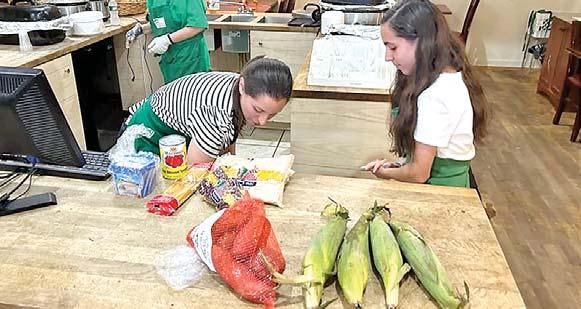
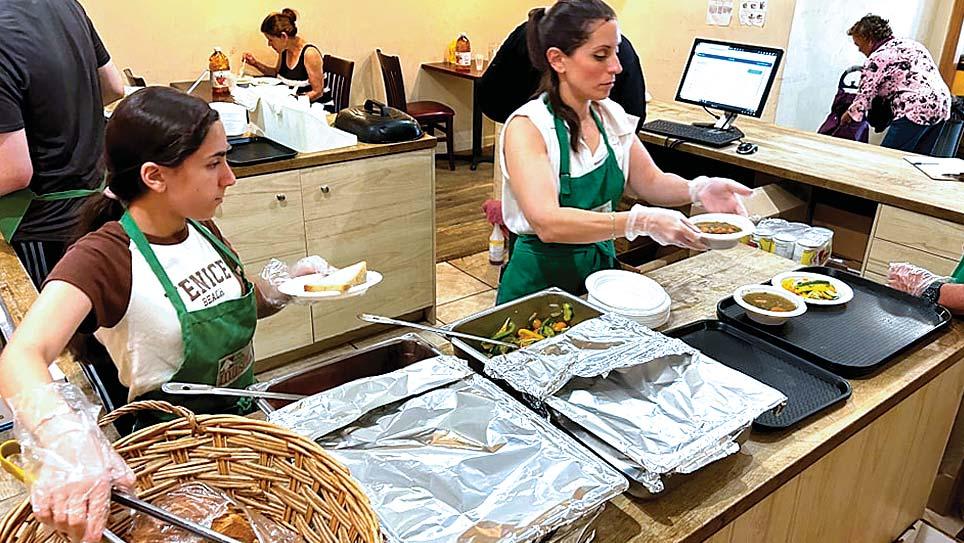
Rapaport said the group’s numbers — 100 or more sitdown dinner guests and 200 food pantry visitors each day — are difficult to use as a gauge on conditions in Queens overall, the city or anywhere else.
“This is the one thing we do,” he said. “We do this every day with the resources we have.
“For us, there was a rush after all the resources that were available during Covid ran out. Donors were fatigued. We were, too. We had been running 24 hours and now we’re running 12 to 9 p.m., and only open to the public 3 to 9 — drastically different than we were five years ago in June.”
Far smaller things, he noted, can have an impact. He said if past is prologue, when the word gets out in the coming days that spices are being included in the food parcels, interest in appointments is likely to pick up as people learn that from neighbors, family or friends.
On the other hand, Rapaport said, if word gets out in the beginning of the week that they are heavy on canned and dry food but low on fresh produce, those more interested in produce may hold off.
“People ask me what I do for a living and I say, ‘I master randomness,” Rapaport said. “There is so much that is random in this business.
“It’s all based on our abilities and our resources. We control the pantry based on what we can handle. We have two other pantries in Brooklyn, and we run them like Starbucks — we have our booklet
for everything we do. On the other hand, every neighborhood has their own needs, their own accommodations.”
“It’s micro and macro. If we had a lot more staff and had a lot more food, we could add more five-minute appointments than we have now. So we push ourselves. That’s the true way to look at it. I would love to do more than 200 appointments day.”
Not all Masbia’s clients are Jewish.
“We are very well-known in the non-Jewish community,” Rapaport said. “We are kosher, but remember, our app works in 10 languages ... But we still don’t want to forget our roots, and the people we opened to serve.”
The group recently hired Rabbi Emanuel Yelizarov as its new mashgiach, or supervisor of kosher food standards and preparation toward that end.
Many emergency food providers in the borough and the city have been reaching out to try and reverse or at least offset federal funding cuts for things like emergency food and SNAP nutritional benefits that have come out of Washington, DC, since January.
Rapaport said there are two answers about the impact on Masbia.
“We are almost entirely dependent on private donations,” he said. “While these things do wind up having some effect, everything has a bit of an effect. If eggs go up, it has an effect.”
Just before Masbia’s major prePassover fundraiser this year, a number of tariffs were announced, causing some steep drops in the stock market.
“Same of our donors got jittery, and we got smaller donations,” he said.
The site itself, Rapaport said, like any other restaurant or food service site, needs to be constantly maintained and upgraded. The extra hours worked at Covid’s peak took their toll on the building and machinery as well as the workers.
While the group has done things like replace its conveyer belt, everything down to the light fixtures always needs to be kept in working order.
And just like Starbucks and every other business, markets and economics are a fact of life.
In an interview a few years go, Rapaport spoke of the challenge to find the most affordable deals on eggs. Not right now.
“I used to say eggs are the poor man’s protein, but not anymore,” he said. “We got some before Passover because they play an integral part. But now they’re as expensive as chicken.”
Masbia now tries to supplant them with any beans and canned salmon and tuna it can get.
For food and other items on Masbia’s wish list, its website has the appropriately titled link masbia.com/wishlist, through which people can donate food and other needed items through Amazon and other vendors. Q
lets you spend only the money you have available, so you don’t have to worry about overdraft fees.
• Just $1 to open
• Checkless account—use your Visa® debit card to make purchases and pay bills
• $5 monthly service charge
• Safe and Affordable!
Open your Flagstar One Checking account today at a branch near you.
Flagstar One Checking 1
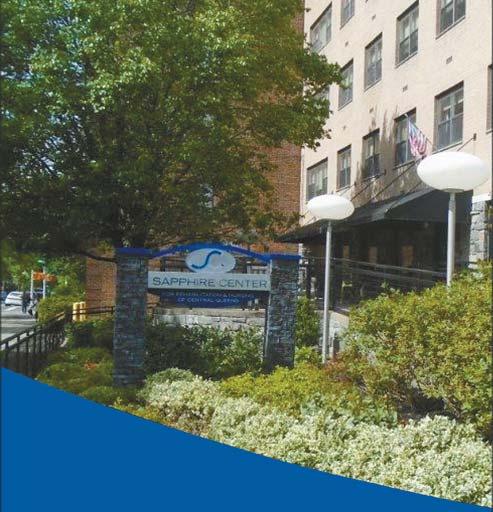
• Five-Star Nursing & Rehabilitation Facility awarded by the
for
and Medicaid
• Administrator member of American College of Health Administrators • Administrator recipient of CMS Outstanding Achievement award for Reducing Hospitalizations
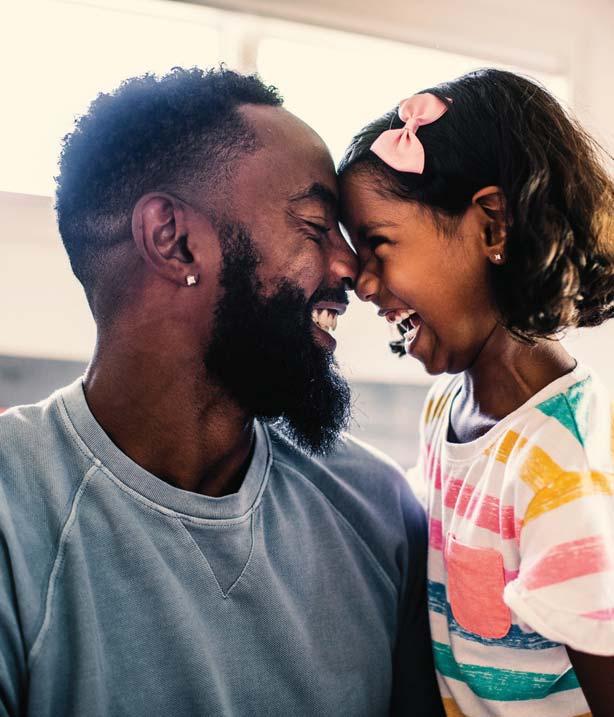
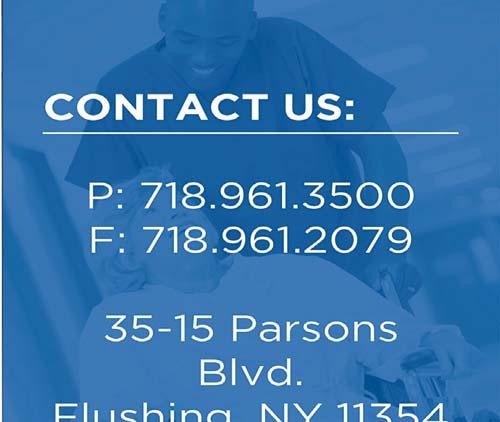


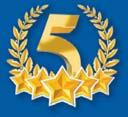
• Administrator is 2016 Recipient of Lily Leadership Award

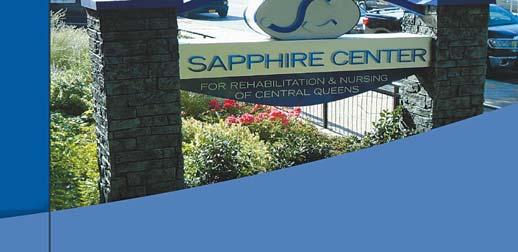
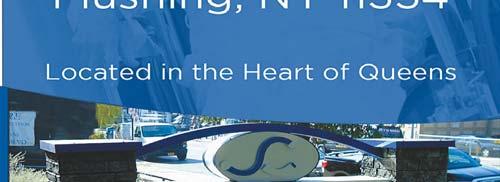
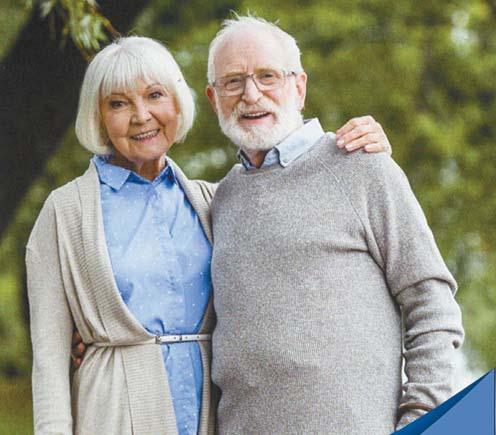






by Kristen Guglielmo Editor
What began as a counseling center in Queens more than 70 years ago has grown into one of the city’s most dynamic social service nonprofits, with over 100 programs supporting 60,000 New Yorkers annually, from early childhood through older adulthood.
“The name is a bit of a misnomer, even though we’re called The Child Center,” TCCNY CEO Traci Donnelly told the Chronicle, adding that the organization serves all ages. “We have programs across the board.”
The nonprofit’s core areas of focus include early childhood education, behavioral health, integrated care, prevention and family support, residential services and youth development.
The organization works in some of the city’s most underresourced neighborhoods, helping children, adults and families overcome barriers to success, with multiple locations around Queens.
programs, more innovative programming that perhaps a typical government organization wouldn’t pay for,” Donnelly said. “And we also come up with ideas based on what people need.”
Rather than simply addressing surface-level issues, TCCNY looks at the full context of a person’s life. If a child is struggling in school, services may include family counseling, health care or help navigating community challenges. Programs are designed to meet people where they are by tailoring services to individual and cultural needs.
The Health Home program coordinates care for youth living with chronic conditions or serious emotional disturbances, bringing together caregivers, educators and healthcare providers to create a cohesive plan for healing and growth.

Those interested in learning more about TCCNY’s services, including a list of locations and how to support the organization, may visit childcenterny.org.
Across all programs, staff take a holistic approach, recognizing that long-term wellbeing requires support for cognitive, emotional and physical health.
“We do a bunch of sort of out of the box
Data and collaboration are central to the organization’s approach. Outcomes are rigorously tracked, and successful methods are scaled and shared. The Child Center frequently partners with schools, hospitals and community leaders to ensure families receive comprehensive, coordinated care.
Programs begin in early childhood, offering services from prenatal stages through age five — including Head Start and Early Head Start — to set kids up for academic and social success. The organization even has a Perinatal Intensive Outpatient Program, sup-

3T MRI • MRA • 1.2 OPEN MRI
LOW DOSE CT • CTA • FLUOROSCOPY
DAT SCAN • NUCLEAR MEDICINE
PET/CT SCAN • ULTRASOUND • DEXA
X-RAY • INTERVENTIONAL RADIOLOGY CORONARY CT ANGIOGRAPHY CALCIUM SCORING
ECHOCARDIOGRAM • LIVER BIOPSY THYROID BIOPSY
PEDIATRIC RADIOLOGY
WOMEN'S IMAGING
3D DIGITAL MAMMOGRAPHY
BREAST ULTRASOUND MRI BREAST
STEREOTACTIC BREAST BIOPSY
ULTRASOUND GUIDED CORE BIOPSY MRI GUIDED BIOPSY

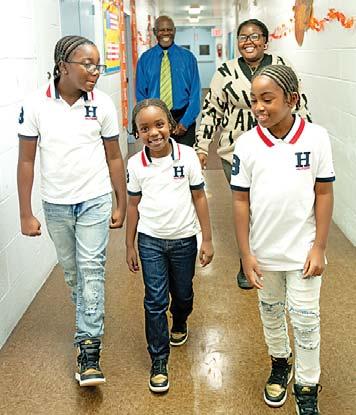
ported by the state Office of Mental Health, to provide support to people who are pregnant or who recently gave birth and are experiencing postpartum depression.
Licensed therapists support clients of all ages through mental health and substance challenges, and primary care services are offered through both telehealth or in-person visits.
TCCNY also provides youth-focused programs — including afterschool activities, internships and college readiness support — to help young people develop life skills.
“We have a very big arts program we believe in,” Donnelly said. “In our residential treatment facility, we’ve hired an art director so kids can express themselves through songwriting. They make sculptures, they do plays, they do an open-mic night, they paint murals. And we’re finding a lot of success. We now have licensed creative arts therapists in our wellness centers as well.”
Cash+Community Works is a neighborhood-based initiative empowering underresourced communities through peer-driven support, individualized goal planning and direct cash assistance.
“A group of women actually opened a daycare center, and they own 20 percent of that daycare center,” Donnelly said. “They’re a group of Mandarin-speaking women in the Flushing area, and they sort of pooled all their resources together and did some fundraising on their own, and they bought this daycare center that now they own 20 percent of.”
Donnelly said the program takes a bottomup approach.
“We don’t go into communities and say, ‘We know what you need.’ Instead, we go in and say, ‘What is it you need?’ and we try to co-create those solutions with the people that live in those communities.” Q
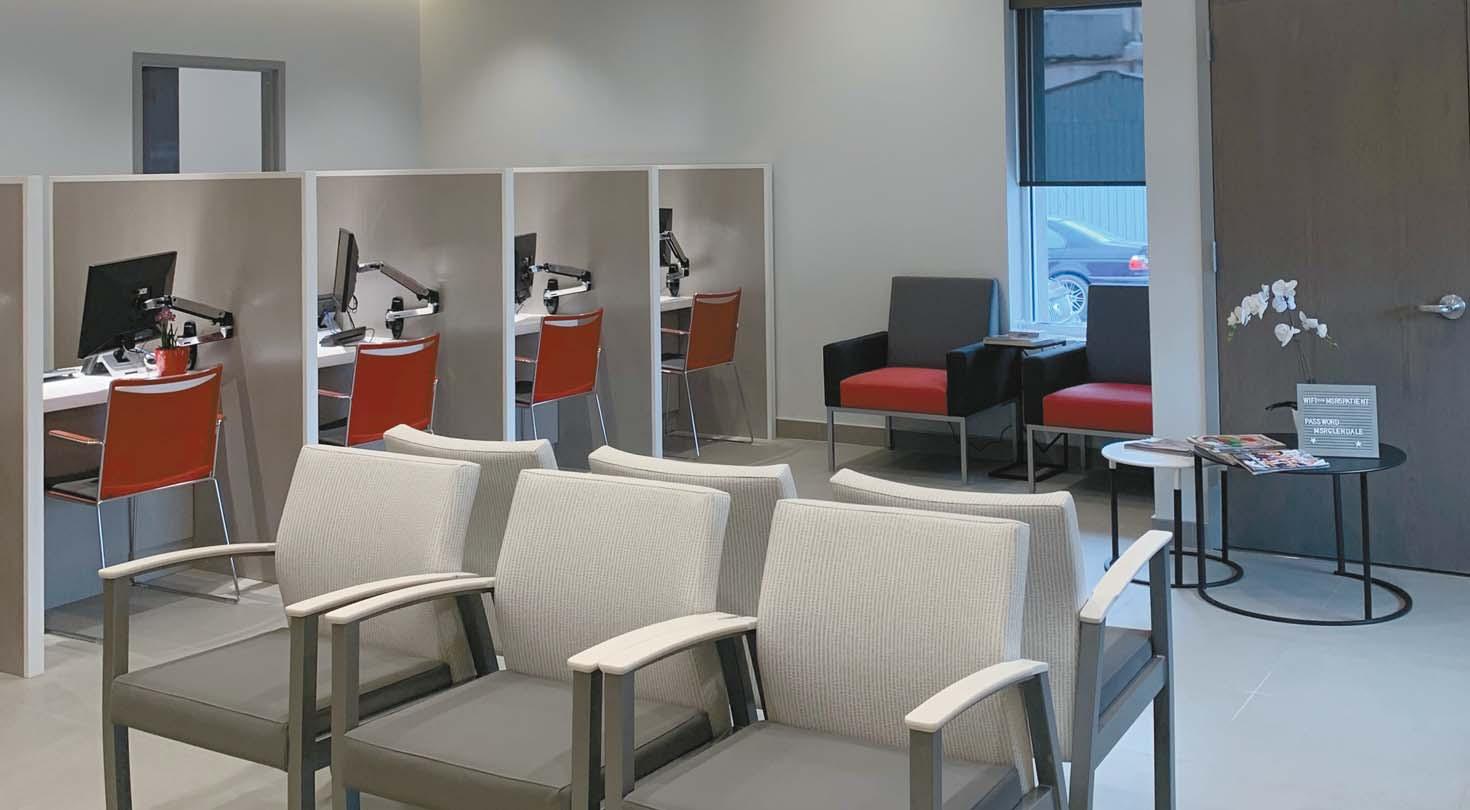
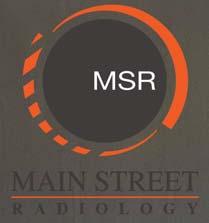
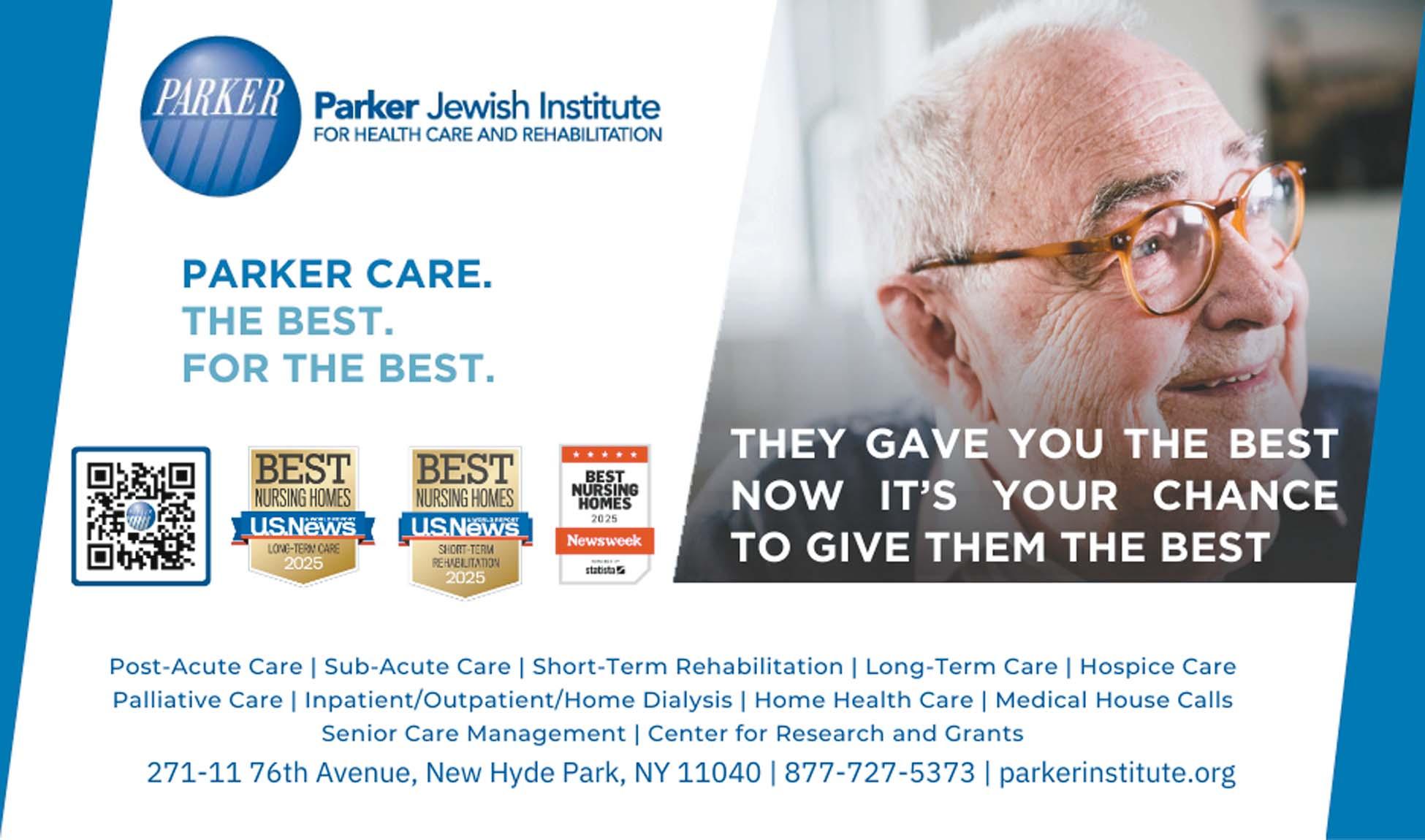





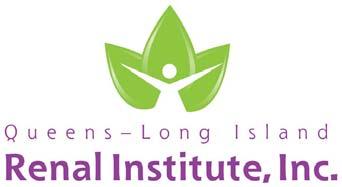

by Stephanie G. Meditz Associate Editor
Stanley Richards, president and CEO of The Fortune Society, said he discovered himself and his potential when he was in prison.
Rather than feeling destined to cycle in and out of jail as he once did, Richards said, he made a commitment to helping others see themselves in a new light.
“I wanted people to see that they could have a life of contribution and they could reintegrate into their family,” he said. “And Fortune Society gave me the opportunity to do that.”
Founded in 1967, the Long Island Citybased nonprofit helps individuals involved in the justice system reenter society by offering a range of services to meet their needs, from housing to education to food distribution.
For Richards, Fortune’s mission is about both seeing the best in people and providing them with the necessary resources to start believing it and living it themselves.
“It’s all centered on the hope in humanity that we buld as a community,” he said.
Fortune’s model of assistance is one that believes there is “no wrong door for entry.”
Decades ago, Richards said, the group realized that referring people elsewhere for assistance diminished the likelihood that they would receive the help they need.
“We have just continuously built out our services so that if somebody walks in our door and all they want is a safe place to be, a meal, they can get that,” he said. If that person also needs housing, to see a counselor or simply wishes to find community, he added, they need look no further than Fortune.
The group crafts its services in response to the need it sees.
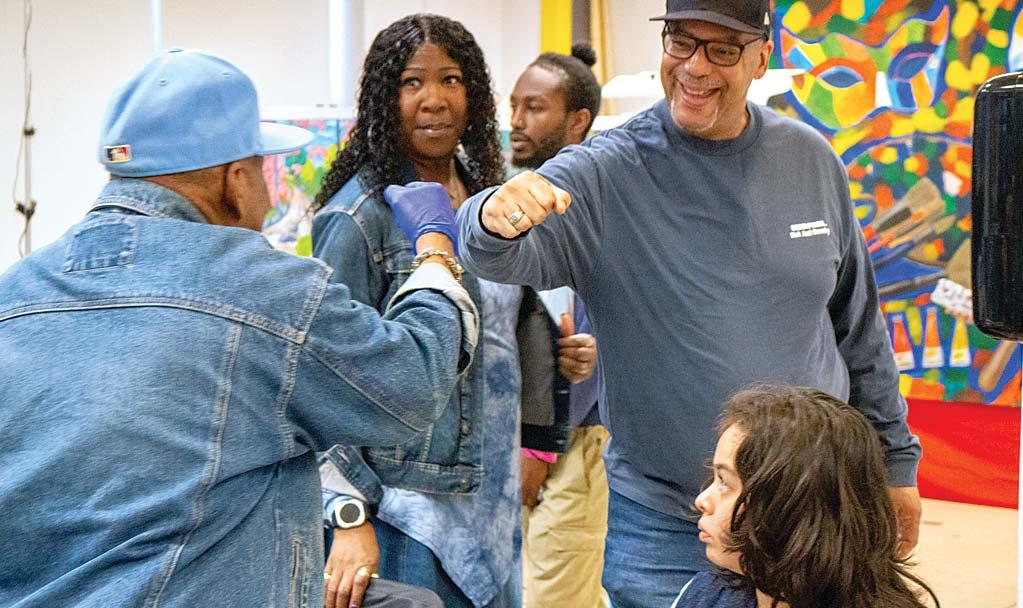
support to individuals with pending cases, also has grown, he said.
“All of our services must be built on what we hear from our participants, what we see as emerging needs, and we need to build it in a way that is sustainable and provides excellence,” Richards said.
Fortune’s services help people get back on their feet after incarceration, but the agency’s investment in them does not stop there.

Richards said about 25 percent of the people it serves do not have stable housing; hence, its housing portfolio has grown significantly — Fortune houses more than 1,200 people on any given night and has several projects in the works to build more affordable and supportive units, Richards said. Fortune also has partnered with New York City Housing Authority developments to support people living there.
Its food services also have grown, with many participants living in food-insecure communities. In addition to its distribution sites in other boroughs, Fortune serves three meals a day at its LIC headquarters. Richards said the group served more than 119,000 meals last year alone, and more than 1,300 people with its food distribution.
Fortune also is expanding its satellite capability to support more people with mental health and drug treatment services. More than 51 percent of people incarcerated in city jails have a mental health diagnosis, Richards said, with serious illnesses coming in at about 20 percent.
Its Supervised Release program, which provides community-based supervision and
Richards said the group makes a lifetime commitment to participants, who are encouraged to come back and pay it forward after they build the life they want.
“That might just be showing others that it’s possible, change is possible,” he said. “Life after incarceration and trauma could be one of contribution and healing.”
Richards’ career with Fortune started when he worked as a counselor in 1991. He worked for what is now called the Hunter College Center for Community and Urban Health from 1997 to 2001 before returning to Fortune as a senior director.
He served as first deputy commissioner of programs and operations at the city’s Department of Correction in 2021 and came back to Fortune the following year as deputy CEO. He began his current role in 2024.
His journey in the criminal justice field was one of fulfillment and contribution, he said, in which people affected by the system can see that there are possibilities for them after incarceration. On his way to and from work every day at the DOC, Richards said, he passed the yard he used to walk in during his own solitary confinement.
“We can both choose to and work on ensuring that we are contributing members to society,” he said.
Richards recalled the story of a man whose life changed after he participated in Fortune’s gun diversion program. The man, who was gang-affiliated and had been arrest-
ed for carrying a gun, was not confident that change was possible for him.
He then enrolled in one of Fortune’s leadership initiatives attached to the program, which required participants to come up with a project to make amends for harm that they may have caused to the community. They opted to give back to seniors by bringing a juice bar to a nursing home.
“He went through this whole experience and began to believe that life could be different for him,” Richards said.
The man said it was the first time he received positive feedback about who he is, what he did and what could happen for him, Richards recalled. After completing an internship with Fortune, the man now works in its violence intervention program as an outreach specialist.
“He is just somebody who, when he shares his story, you can see the transformation and you can see the impact, when you have somebody who goes from hopeless to hopeful,” Richards said.
Fortune is an organization that “walks the talk,” he said — roughly half of its staff either are justice-impacted, in recovery or deal with a behavioral health issue.
Not only does the agency assist formerly incarcerated people with reentry, but it strives to change the carceral system itself. Fortune advocated for the 2022 Less Is More Act, which reformed the state’s parole violation system. Richards said he himself is a beneficiary of the state’s Clean Slate Act, which seals certain criminal records after a waiting period.
He also cited as a recent victory the city’s Fair Chance for Housing Act, which went into effect in January to prohibit housing discrimination based on criminal history.
“It is not sufficient for us to be the safety net when people come home or to be diverting people so they don’t get caught up in the system,” Richards said. “We must work further upstream and try to change the system
that disproportionately impacts so many Black and brown people and so many underresourced communities.”
Fortune also addresses some policy issues, including alternatives to incarceration and human services, in a coalition with other organizations.
Richards said the group makes some of its biggest impacts through its creative arts program, collaborating with MoMA PS1 to bring art and poetry from its participants to the rest of Queens. Astoria’s Socrates Sculpture Park is another of its partners.
The group celebrated its 12th annual Arts Festival, which included live music, poetry, dance, art-making workshops and a healing garments exhibition, at its home base last Saturday.
“When I think about Fortune Society and the work that we’re doing, it is a community of healers centered on the humanity of who walks through our doors,” Richards said.
The agency also welcomes community collaboration, from donations to volunteering to fundraising. One may learn more about its work at fortunesociety.org.
“We want people to be in partnership with us and be in community with us so that we can bring about the change that we envision for this world,” Richards said.
Another part of his vision for the organization is people-first leadership, or making sure staff members feel supported and can grow, too. Their own wellness translates into meaningful relationships with the people they serve, he continued.
“We don’t ask how much time you served, we don’t ask what crime you committed. We only ask, who do you want to be?” Richards said. “And we work with them to become who they envision themselves to be.
“It is not without setback, but it’s not the setbacks that we talk about that define them. It’s your willingness to stay in the fight. It’s your willingness that when you are in the valley, you can begin to see the mountain.
“It is your willingness to be vulnerable, transparent and have authentic connections. And that is true for our staff, and that’s true for our participants.” Q
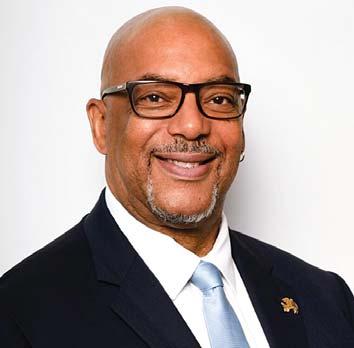





by Naeisha Rose Edior
“Legacy is not what I did for myself,” said Vitor Belfort, a champion boxer and mixed-martial artist. “It’s what I’m doing for the next generation.”
The Queens Center for Progress, a nonprofit that helps children and adults with special needs, celebrated its own 75-year legacy Tuesday.
“It’s a testament to the lives we’ve touched and the progress we’ve made together,” QCP Executive Director Terri Ross said in a statement. “As we honor our past, we are also looking ahead, committed to breaking new ground in how we support people with developmental disabilities. The challenges and opportunities before us inspire us to dream bigger and do even more for the community we serve.”
The organization, based at 249-16 Grand Central Pkwy. in Bellerose and online at queenscp.org, had a humble beginning. It was created by a group of parents fighting to protect and help children with cerebral palsy.
“They were local to Cunningham Park and the Fresh Meadows area,” Wendy Gennaro, QCP’s director of development, told the Chronicle. One of the founding members of the group was Natalie Katz Rogers, who served the organization as a board member up until she was 103, before passing in May 2023.
“Our founder was just a member of the community who was part of a women’s group who wanted to help, so she went to Queens Hospital, which is across the street from where we are located now, and said, ‘We want to help, what do you guys need?’” she continued. “They took her to a room filled with children who had cerebral palsy. They said, ‘These kids have cerebral palsy; we don’t know what to do with them.’”
In 1950, when the group was founded, it was called United Cere-
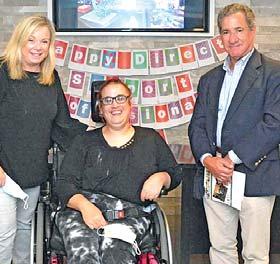
bral Palsy of Queens.
“Families had a choice — they could hand their kids over to the state to take care of them, and we know how that turned out ... or they can keep them at home, but there really were no services back then,” Gennaro said. “It’s really amazing how far we’ve come in these 75 years from where we started.”
QCP went from being a small group of parents to an organization staffed with 600 people with a budget of $35 million with funds from the local, state and federal governments.
As research helped people learn about the cause of the disease, resulting in fewer births of children with the condition, the nonprofit’s name was changed in 2001 to reflect its expanding care-driven mission.
“Some of the other things we cover now are intellectual disabilities ... epilepsy, people on the autism spectrum, neurological impairments ... and other genetic diseases like down syndrome,” said Gennaro.
The main goal of the nonprofit is to help its clients become as independent as they can be via various therapies and educational and job training programs at its centers and alternative sites.
“It’s different for everybody,” said the director of development. “It is not a one-size-fits-all services. That is why our mission services are ‘person-centered.’ Everybody has different abilities, everybody has different goals and everybody has a different need or want to become independent. Basically, we want people to live their best lives. We are all people, we have the same wants and needs, and so we do everything we can to help them to feel enriched and fulfilled in their life.”
QCP has a clinic and social workers who help people get Medicaid, Medicare and other benefits and entitlements. It also provides housing at nine group homes in Bellerose, Jamaica Estates, East Elmhurst and New Hyde Park, LI, for independent living and those who have profound medical needs or physical limitations.
At its two centers, in Bellerose and Jamaica, QCP offers Day Habilitation programs, which promote independent living. The program offers occupational, speech and physical therapy to its clients, along with life skills.
“Between our two programs, there are about 200 people with different disabilities,” said Gennaro. “Some work on life skills like travel training, how to handle money, how
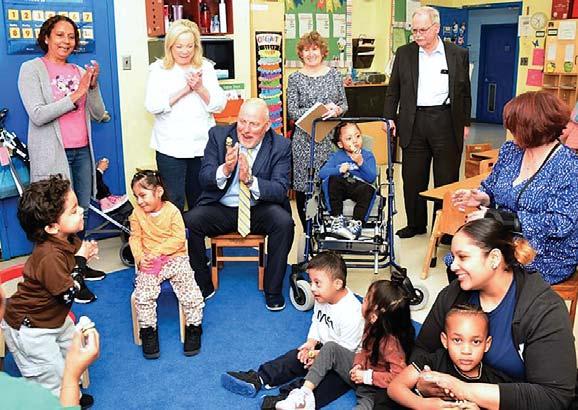
to be in the community and get along with other people, how to ask for things, how to ask for directions, how to work together with other people and all different types of socialization skills.”
People have the opportunity to go out into the community and volunteer at SNAP centers, libraries, senior centers and animal centers.
“They are always out in the community learning life skills and giving back at the same time,” said Gennaro. “All of the skills that we teach them are just a means for them to become more independent and to be able to confidently go out and make choices.”
Her favorite program at QCP helps provide employment.
“We assess skills and abilities,” said Gennaro about the supported employment program. “Supported employment, what they do is work on skills, they work on interviewing, how to fill out applications, all the things they need to get a job ... There are job developers and job coaches and everyone to support the individual when they get their job. The developer will go and work with companies to find what types of jobs are very specific to the people — to someone’s skills, or they also find out what jobs they have and we train and get everyone ready to take those jobs.”
new hire because we have the coach there to get them really up to speed and stay with them until they know the job backwards and forwards,” said Gennaro. “When they feel confident and comfortable, the job coach backs off. Eventually, they will maybe check in once a month. That job coach is also someone the employer or employee can reach out to if there is something that they need, any help or assistance, or if an issue comes up that needs to be resolved.”
The individuals who get hired become comfortable in the workplace, and employers get people who enjoy coming into work and are less likely to face employee turnover.

“Once they are comfortable in a job they are more likely to stay there for a long time,” said Gennaro. “There are also benefits to the company if they participate in the program.”
Some of the basic work skills taught include punching in, basic computer knowledge and how to use a cash register.
“A lot of them work in supermarkets like Stop & Shop; we have a lot of guys at T.J. Maxx, Home Depot and some smaller stores and restaurants,” Gennaro said. “They do everything from janitorial services to stocking to greeting and taking care of shopping carts.”
to art and a lot of hobbies,” said Gennaro. “They work on the computers and learn how to use the Internet, really anything that you would see at a senior center. It’s very hobby-based to help them maintain their skills. You don’t want people to slide.”
Photography and outings to the park and regular senior centers are a few of the other senior programs.
The children’s program has a prekindergarten for ages 3 to 5. QCP has universal pre-kindergarten, 3-K and 4-K city programs.
“We have integrated classrooms with kids who are typically developing alongside kids with disabilities,” said Gennaro. Similar to the Day Habilitation program, there are physical, occupational and speech therapy programs.
“It’s like any other classroom,” she said. “It’s our flagship program.”
The adult program is for anyone 21 and up.
“The needs change and the skills change,” Gennaro said. “For the little ones, we really have an eye to help them matriculate into public school and to be able to go into general population ... The adults are learning all of those life skills that we discussed earlier, along with nutrition, how to take care of themselves, current affairs and arithmetic as a skill.”
There are also tennis, running, yoga, Zumba, rowing at Flushing Meadows Corona Park and, more recently, a theater program.
“The push for the individuals in the adult program is to get them integrated into the community doing stuff with other folks,” said Gennaro. “That is what it really is about.”
The theater program started in April and had a “Willy Wonka”themed production.
“The theater program helps them build self-esteem, gets them out of their comfort zone, helps with team building skills — and you can see the difference in these guys in these 12-weeks. They have really blossomed,” Gennaro said.
The next free production is June 27, from 11 a.m. to 6 p.m. at the QCP Adult Center in Jamaica, located at 81-15 164 St.
Tickets are available at secure. qgiv.com/event/qcpplayers25/.
Once an individual secures a job, he or she gets a coach who will learn the job thoroughly and train the client.
“That takes the responsibility off of the employer to have to spend more time than necessary with the
Clients also have become hair washers at salons, work concessions at Citi Field and sell items at a corner store at one of its sites.
People 45 and up may join QCP’s senior program.
“They do everything from music
Out of the more than 1,200 people the group serves, about 100 participants act, sing, build sets, work on costumes, usher and sell concessions in the theater program.
“They are very hands-on,” Gennaro said. Q


• PODIATRIST
Dr. William Hansen Podiatrist








• DIABETIC FOOT CARE AND DIABETIC SHOES
• PODIATRIC SURGERY
• ROUTINE PODIATRY CARE
Simple Treatment of Corns, Calluses and Toe Nail Problems
• SPORTS MEDICINE
Treatment of All Athletic Foot Injuries (Runners, Tennis, Etc.)

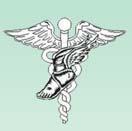

Treatment of Heel Pain, Toenail Fungus, Infections, Arthritis, Circulatory Problems, Etc.
In-Office and Hospital Surgical Treatment of Corns, Calluses, Hammertoes, Bunions, Ingrown Nails, Etc.

B oard C ertified Foot S urgeon
Care and Maintenance
We are committed to ensuring the safety and health of all our patients and employees.

• CHILDREN’S ORTHOPEDIC & MEDICAL FOOT PROBLEMS
We accept Medicare Assignments, Union Plans, Most Insurance Accepted
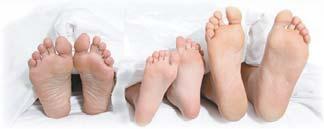
170-03 Northern Blvd., Flushing, NY 11358 • (718) 353-3668
Corner of 170th Street - Bus: Q12 or Q13 “Modern Facilities Dedicated To High Quality Professional Service”










































































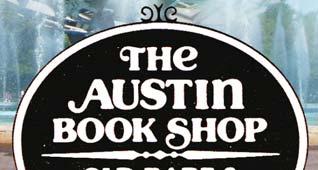



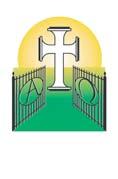
by Michael Gannon Senior News Editor
Just about everyone has heard of the YMCA, but many don’t know the nature and scope of what the group provides.
With six locations in Queens offering swimming lessons, computer lessons, summer camp, job training, afterschool programs and senior services, the answer very often can be, “What do you need?”
The Queens locations come under the auspices of the YMCA of Greater New York, which was founded in 1852 and has 25 branches in the city.
They include sites at 138-46 Northern Blvd in Flushing.; 89-25 Parsons Blvd. in Jamaica; 32-23 Queens Blvd. in Long Island City; 69-02 64 St. in Ridgewood; the Cross Island chapter at 238-10 Hillside Ave. in Bellerose; and 207 Beach 73 St. in Arverne.
Alex Luan, regional marketing and communications director of the YMCA of Greater New York, shared the group’s mission in an e-mail to the Chronicle.
“As New York City’s leading nonprofit health and well-being organization, the Y empowers everyone, no matter who they are or where they’re from, by providing access and opportunities for all to learn, grow, and thrive,” she wrote. “We provide a place to play, to be healthy, and to give back. We give parents childcare, young adults job training, seniors a way to connect, and children a safe place to go.
“By bringing people together from different backgrounds, perspectives, and generations, the Y improves overall health and well-being, ignites youth empowerment, and connects and supports diverse communities across New York City.”
The Jamaica YMCA dates back to 1927 at the First Presbyterian Church on 164th Street. Sabrina Scott, the membership sales, engagement and healthy lifestyles director in Jamaica, said the YMCA tries to be accommodating as possible at its six facilities in the neighborhood.
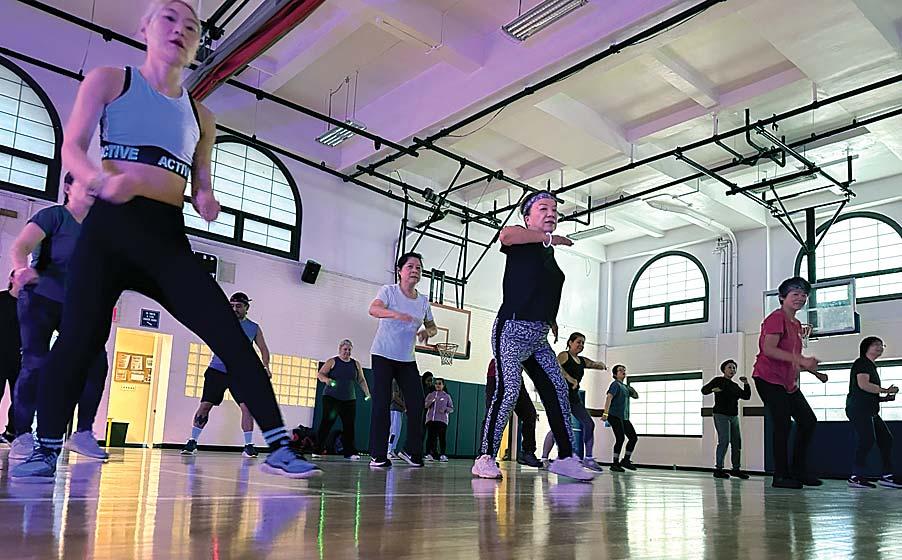
breakfast for all of our members and residents, and our staff.
“So there’s always something going on here at the Y.”
Hours are 6:30 a.m. to 8:30 p.m. Monday through Friday; and 8 a.m. to 3 p.m. Saturday and Sunday. Further information on the Jamaica YMCA, including membership fees, is available at tinyurl.com/37p4yek9 or by calling (718) 739-6600.
Luan said Ridgewood does not sell branch memberships, and has not since the Covid pandemic. But it does allow people, including members of other YMCAs, to register for things like fitness classes, with discounts for those signing up for multiple sessions.

“We have basketball for children aged 5 and up,” Scott told the Chronicle in an interview. “We have soccer and swimming. We have an afterschool center ... We offer financial assistance for those who can’t afford to pay our monthly membership fee.”
Right now, Jamaica has a summer family membership of $205 for two adults and up to three children that began in May and runs through August.
There also is a residency program for transitional housing. And computer classes are on the horizon, with the lab under construction.
“The Y is here to create a space where people can come and have a family,” Scott said. “To help find ways to create healthy living.
“It’s a home, especially for our seniors. This is where they come for entertainment, to meet their friends. We had a Father’s Day
“Our Ridgewood YMCA is unique in that we have robust programs that we offer to seniors in our community,” Luan said. “Our summer camp is also highly popular. For 2025, our camp registration is already full, and we are thinking of adding more slots to accommodate the demand of the families in our community.”
She said in 2024 Ridgewood served 1,300 individuals, including 100 summer campers and 120 seniors; the latter enjoying fitness programs such as cardio conditioning, strength training and chair yoga.
The branch also gave $13,700 in camp scholarships to children from families with financial need.
Ridgewood’s Lunch and Learn program invites speakers from different fields to speak with members of its active older adult program over a free lunch. Recent topics have included fraud protection for older adults self-defense.
There also are holiday celebration luncheons.
Hours in Ridgewood are 8 a.m. to 8:30
p.m. Monday through Friday. Saturday hours are 9 a.m. to 1 p.m. and 5 to 9 p.m. It is closed Sunday. Further information on programs and membership fees is available at tinyurl.com/yc3mduum or by calling (212) 912-2180.
Programs and amenities at the Cross Island YMCA include but are not limited to family gym time, family swims in an indoor pool, lap swimming, racquet sports, tennis courts and group fitness classes.
According to its website, various arts and education programs are available for children ages 30 months to 9 years. Swimming lessons are open to children as young as 5, teenagers and adults.
Tennis and martial arts are available for children and adults. Other youth sports include instructional basketball, soccer, floor hockey, volleyball and dance.
Hours are 5:30 a.m. to 10 p.m. Monday through Friday and 7 a.m. to 6 p.m. Saturday and Sunday. Information on membership fees and activities is available at tinyurl.com/ mr3sjnw7 or by calling (718) 551-9300.
Flushing’s website offers more than a dozen swimming programs for ages 3 to adult for those of any skill. Youth basketball instruction begins at age 3. Soccer, karate and ballet begin at age 5.
Flushing Y Afterschool, based at three area schools, focuses on learning enhancement, health and recreation, and building competence and confidence in children. Fees run between $179 and $260 per week, and financial assistance is available.
The Y’s New Americans Initiative is committed to actively raising the quality of life for all immigrants and refugees in New York City through vital trauma-informed support services, learning opportunities, and more. The program never turns anyone away — or inquires about immigration status. Registration is available in five languages.
Flushing also has a hostel program that rents guest rooms.
Hours are 6:30 a.m. to 10 p.m. Monday through Friday and 8 a.m. to 5 p.m. Saturday and Sunday. Further information on the Flushing Y’s fees and programs can be found at tinyurl.com/4r7x63ex or at (718) 551-9350.
In Long Island City, swimming lessons begin with a Water Discovery program for children 6 months to 3 years old. It is one of 25 programs on the group’s website for children, teens and adults.
Beginner basketball is for kids ages 5 to 12, while taekwondo is for those 5 to 11.
Instructional soccer is available for ages 4 to 12, with advanced soccer for those 6 to 12.
Then there is LIC’s Early Childhood Center with its 3K and pre-K program that the website says is open to both Y members and the community. The website states that the aim is to provide a safe, nurturing family environment where children are intellectually, socially, and physically stimulated while participating in fun activities. Information on applying is on the LIC Y’s website.
Summer camp registration also is being conducted.
Hours are 6 a.m. to 10 p.m. Monday through Friday and 7 a.m. to 5 p.m. Saturday and Sunday. Further information on programs is available at tinyurl.com/22yaandm or (718) 392-7932.
Down by the ocean, the Rockaway branch’s website lists 15 swimming programs, with two geared for children 6 months to 3 years old and others including adults.
Instructional sports offerings are basketball for ages 5 to 12; karate for ages 6 to 15; and acrobatics and tumbling for ages 3 to 12.
The Saturday Night Lights program, aside from sports, includes work on leadership, college preparation, financial literacy, entrepreneurship, career readiness and more.
Hours are 6 a.m. to 9 p.m. Monday through Friday and 8 a.m. to 5 p.m. Saturday and Sunday. Information on registration fees and programs is available at tinyurl. com/3c594j8t or (718) 215-6950. Q
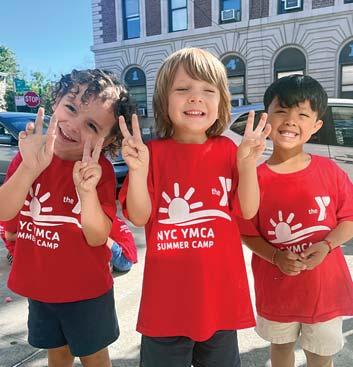
Who can think of the YMCA without thinking of summer camp for children?


PROVIDING LEGAL SERVICES IN:
■ Civil/Commercial Litigation
■ Matrimonial & Family Law
■ Trusts & Estates
■ Veterans Benefi ts (emphasis on Agent Orange Claims)
■ Mediation Services
■ Special Immigrant Juvenile Status (SIJS) Mat ters
Amy J. Barrett, Esq.
Proud Daughter of Vietnam Veteran abarrett@barrett-lawfirm.com Celebrating more than 20 Years of Practice (718) 675-3995 www.barrett-lawfirm.com

As a lifelong r esident of Queens, I take pride in
As a resident of Queens, I take in the B or ough and our communities. If you sh ould the Borough and our communities. If you should need assis tance in any mat ter, please do need assistance in any matter, do not hesitate to contac t my of fice not hesitate to contact my office



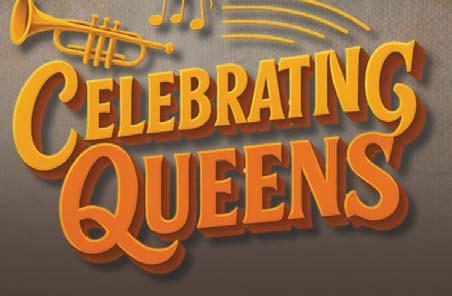



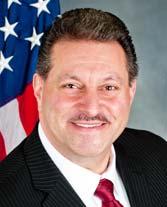


New York State Senator - District 15







